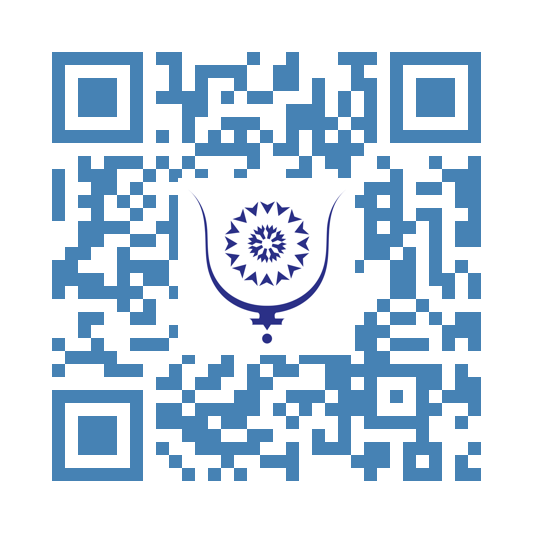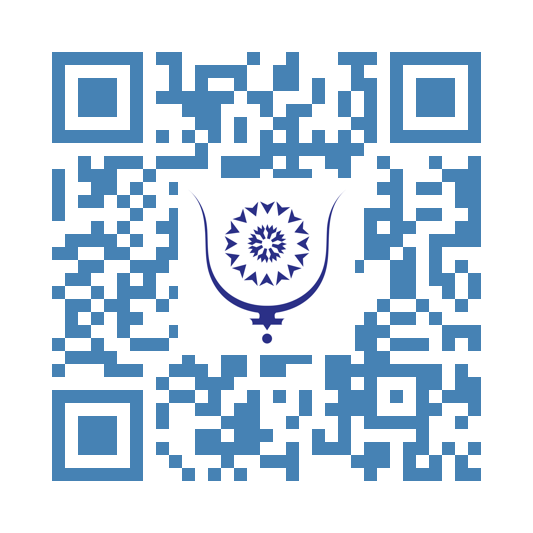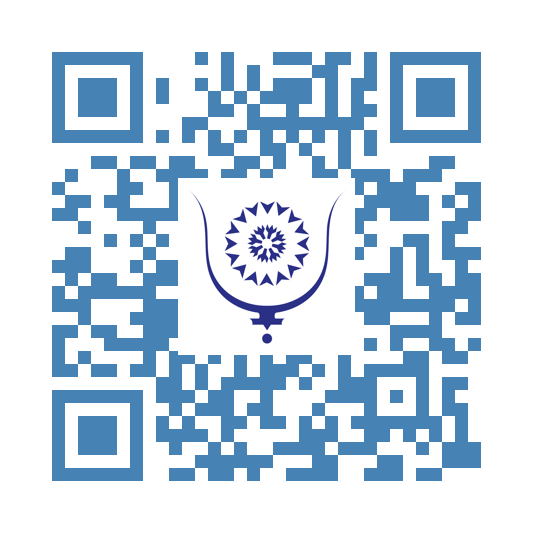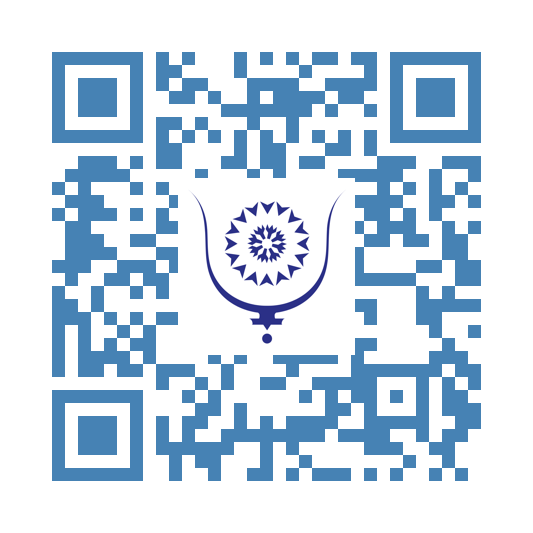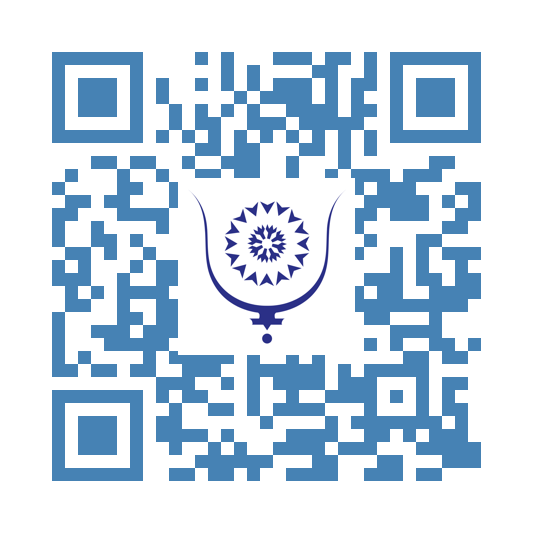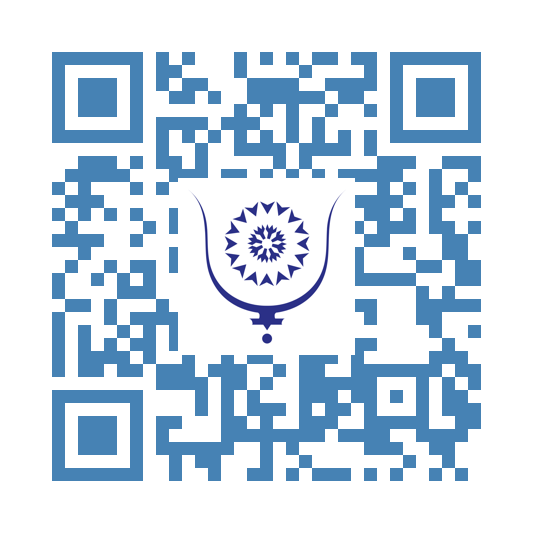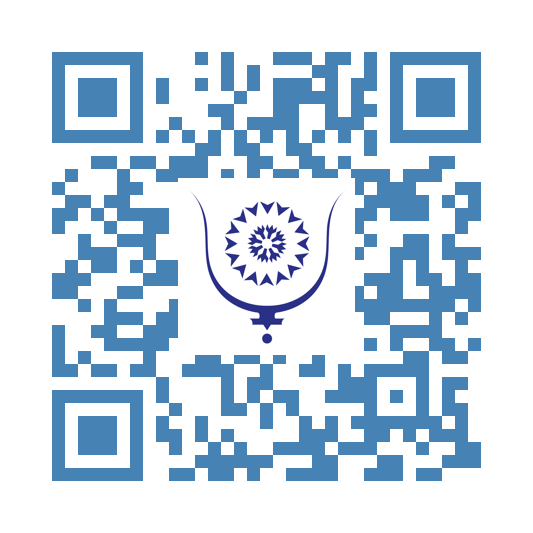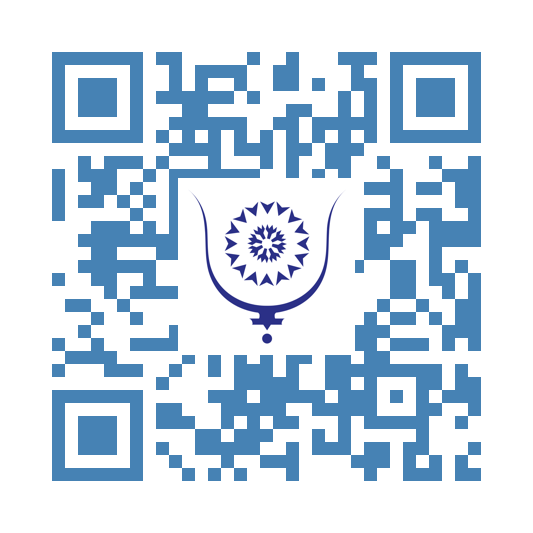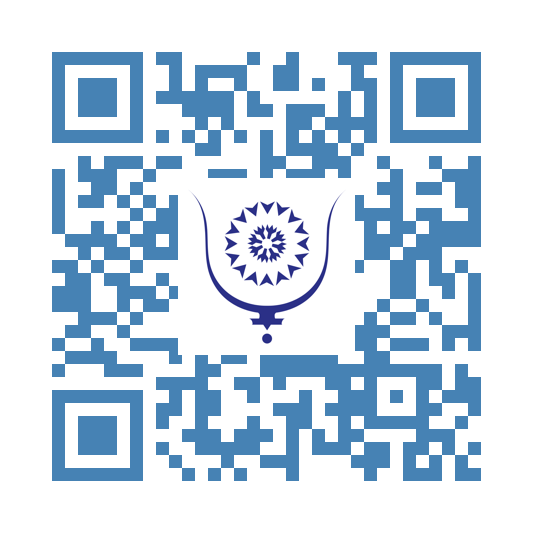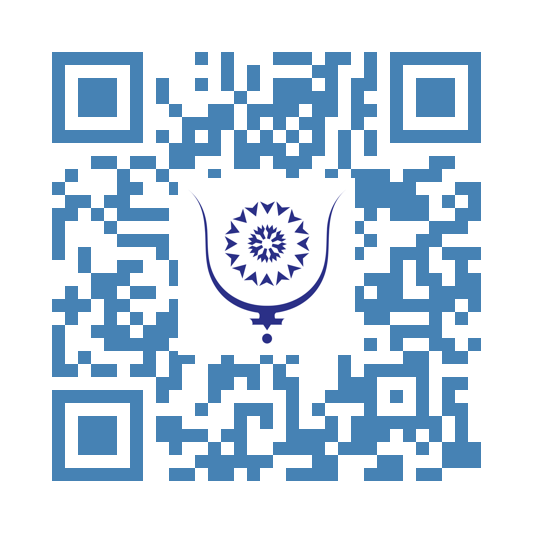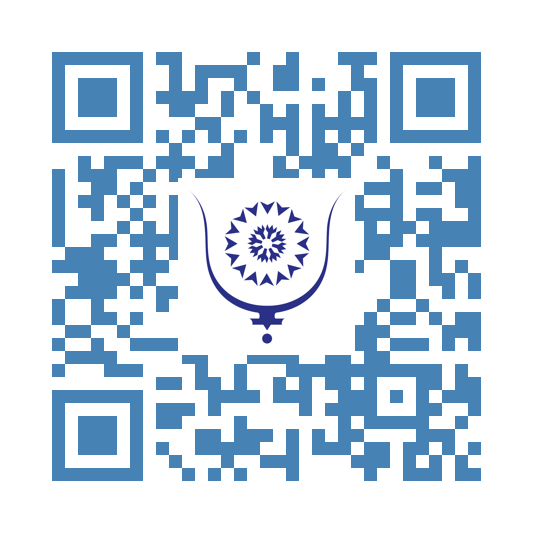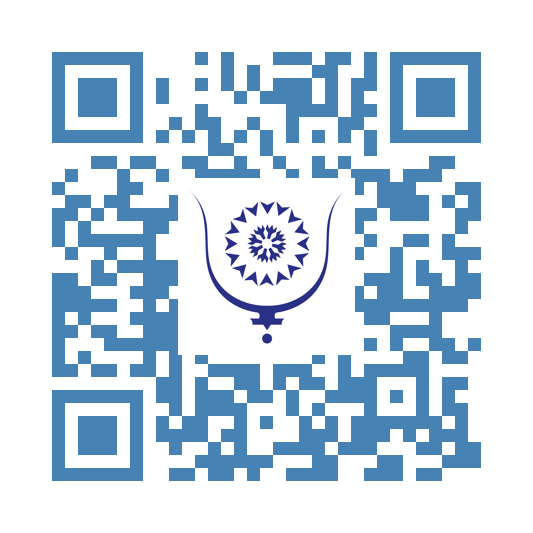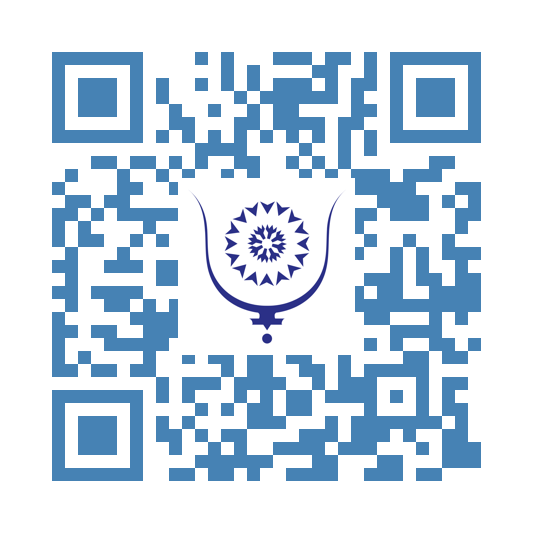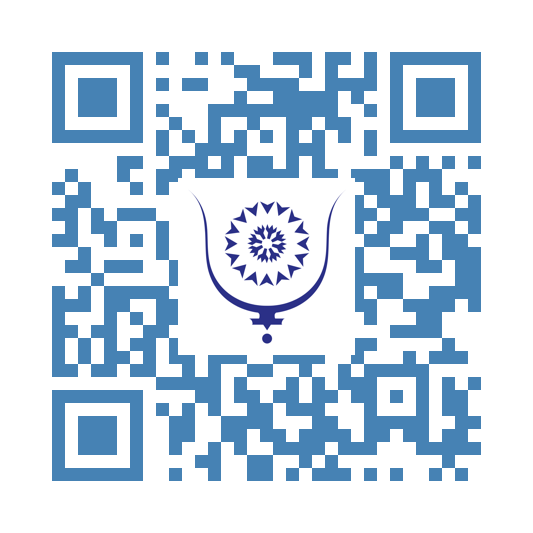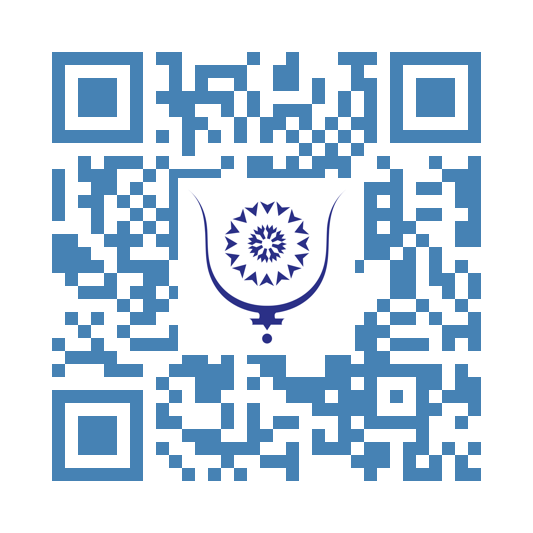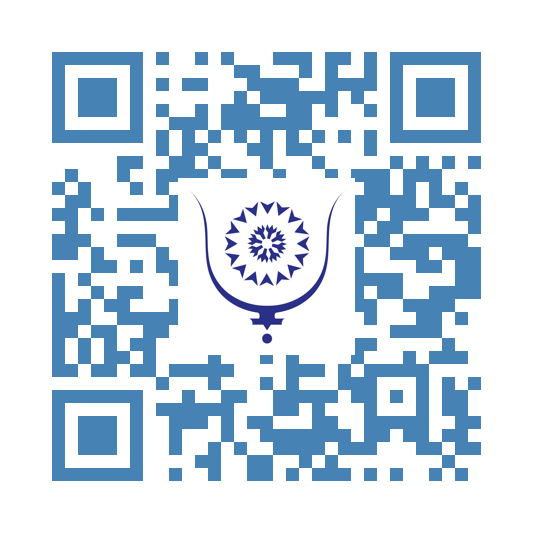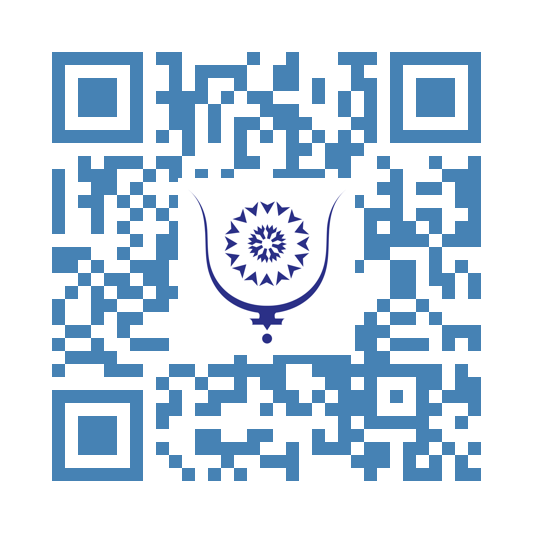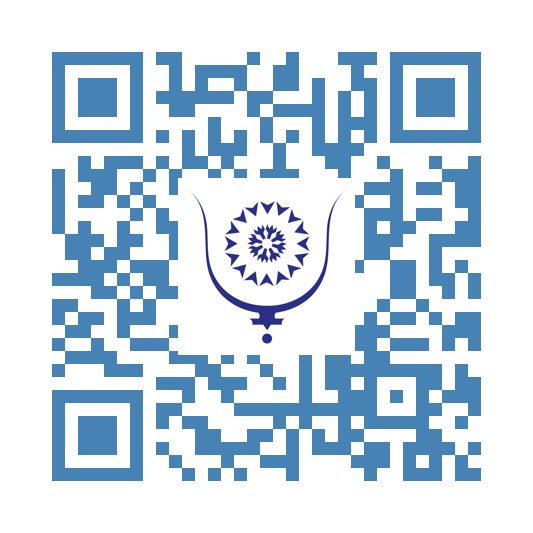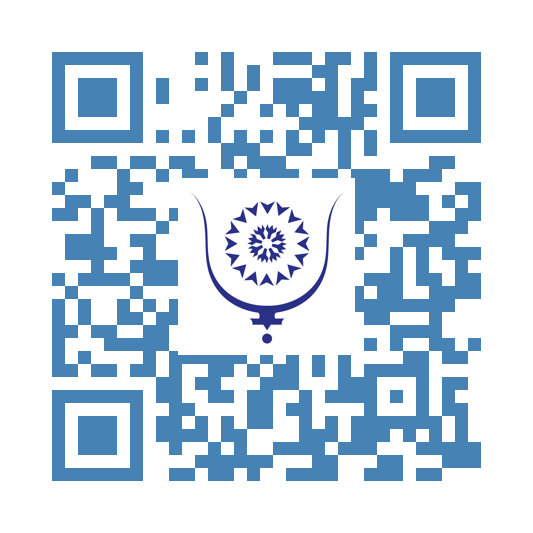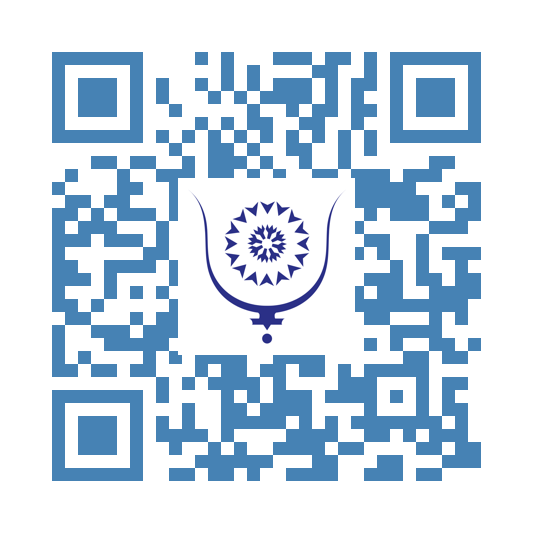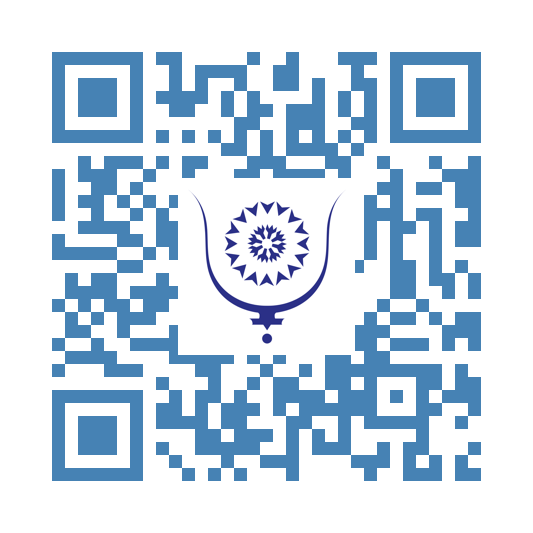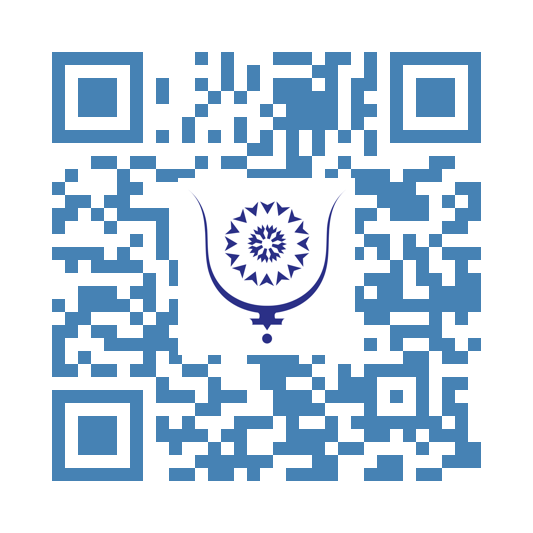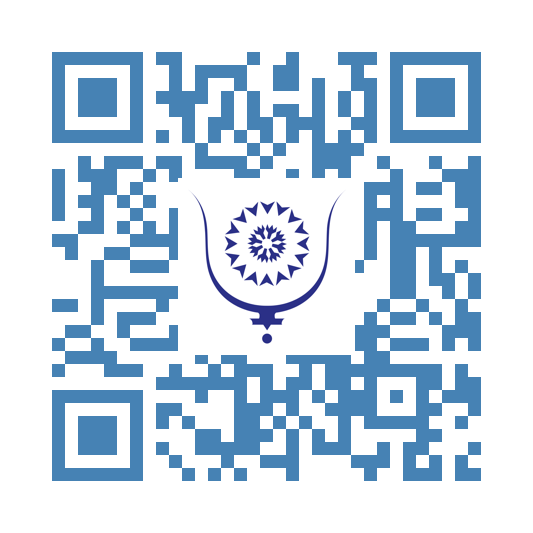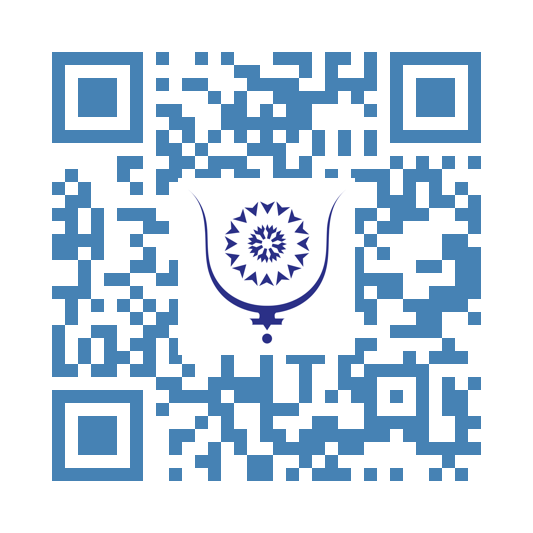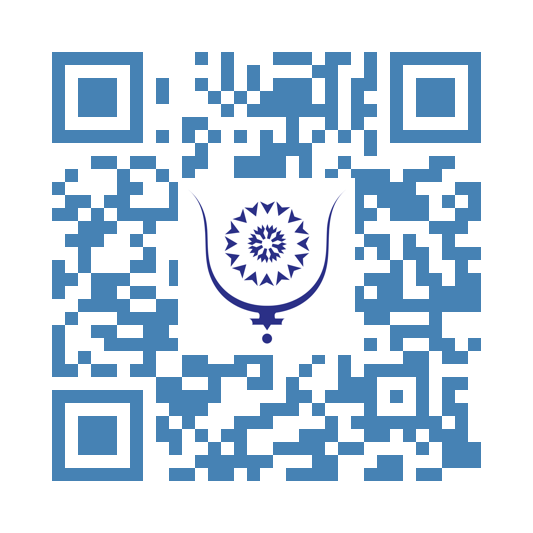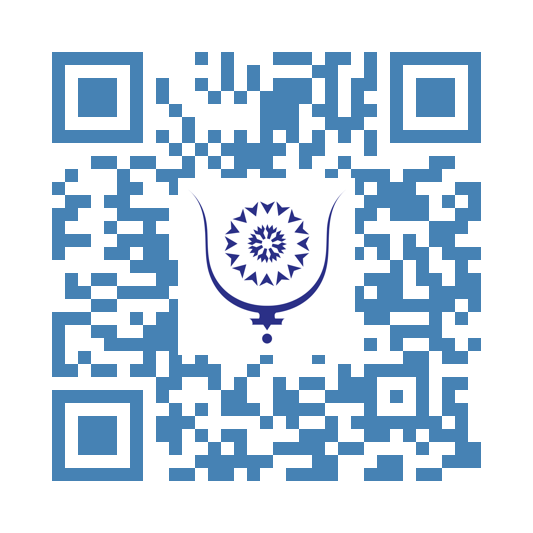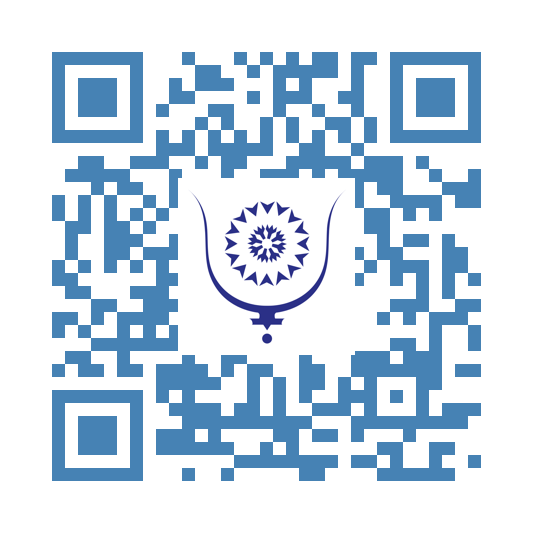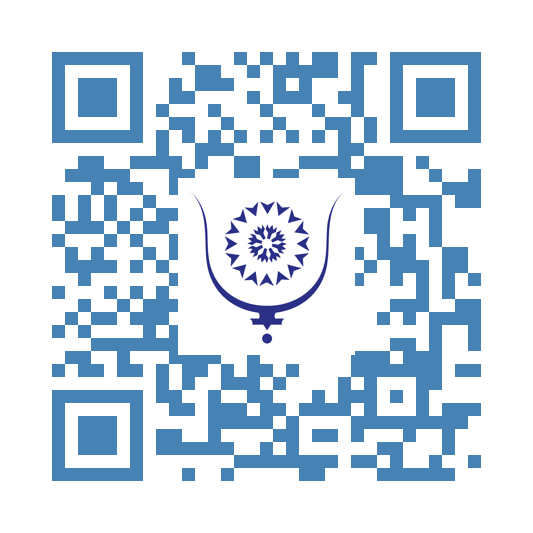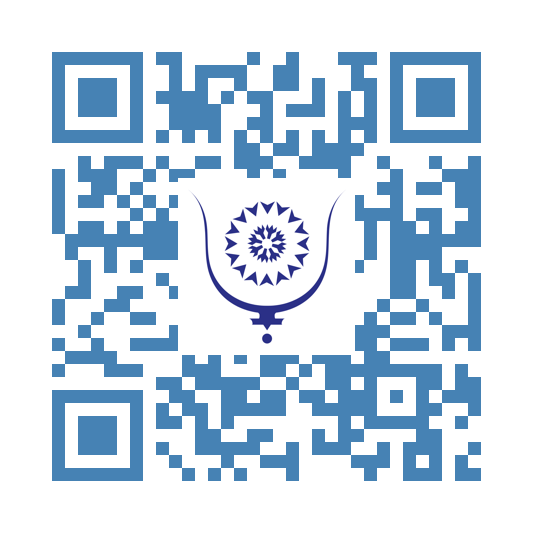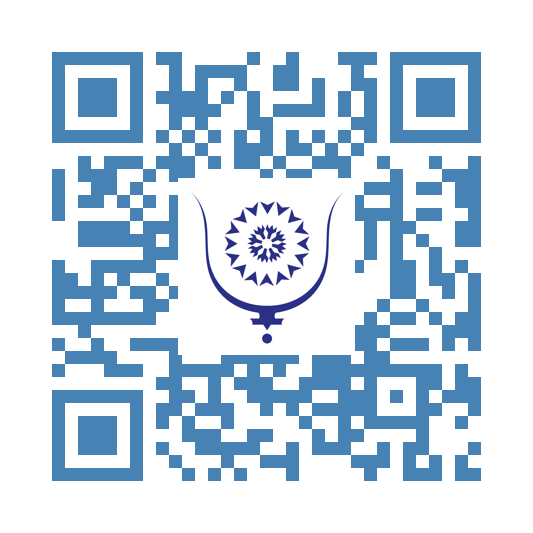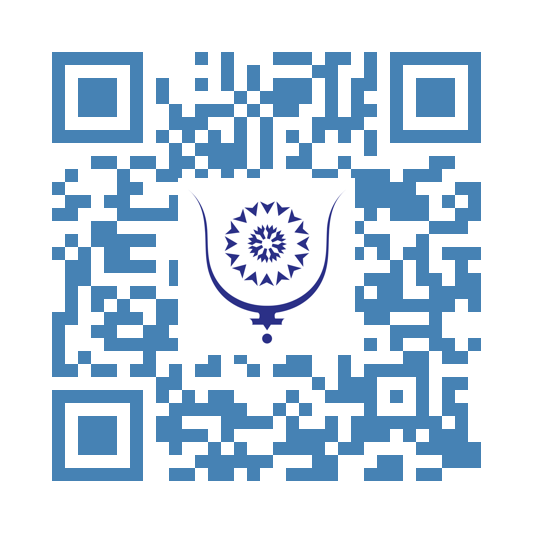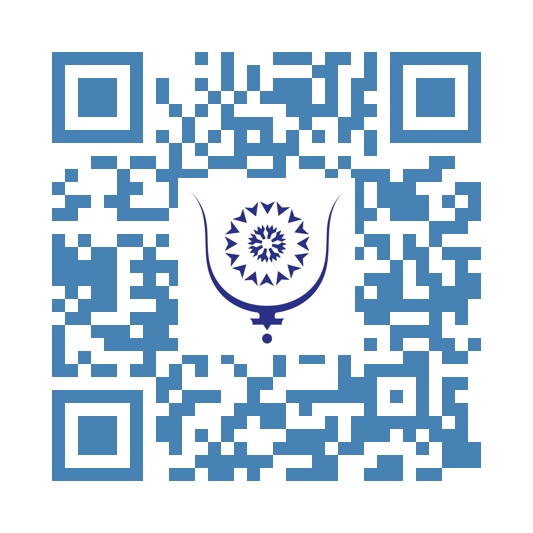Share. Publish. Get Read.
Upload your stories and get eyes on your work today. New writers break through every week secure your spot among them by putting your writing front and center.

Think Forward.
World Politics
Politics
History
Technology
Science
Art
Music
Society
Lifestyle
Business
Finance
Health
Sports
Poetry
Short Stories
Philosophy
Science Fiction
Romance
Realist
Fiction
Fantasy
Biography
Mystery
Western
Thriller
Other Worldly
The Neighbor of the Valley
(Inspired by the song of Fairouz — “Ya Jarat al-Wadi”)
O neighbor of the valley, O joy,
O turmoil of my soul,
Your memories and dreams haunt me still,
Calling me, claiming my whole.
In my dreams as in my waking mind,
Your love remains, ever near;
And the memories softly resound,
Echoes of a past still clear.
I passed again by the gardens,
So green, so full of life —
There where I once met you,
Upon that sunlit hill.
Faces and eyes smiled upon me,
And in their breath I sensed your scent.
My weary soul revived at once,
She who had mourned her fate
Since the day you went.
Never before had I known
The sweetness of a lover’s embrace,
Until the day I gently held you close —
You, the red-haired grace,
Whose supple form bent softly in my hands,
Like a slender branch swayed by the breeze,
And whose cheeks, out of modesty,
Blushed with tender unease.
The language of words fell silent then,
Yielding to the speech of eyes;
Mine spoke to yours
With the passion love implies.
The stars and the heavens, our only allies,
Bore witness to us before the skies.
And when night came, I held you again,
Caressed and kissed you
Until the breaking of dawn —
Before we drifted apart, forlorn.
Since that day, there has been no yesterday,
No tomorrow, no day after,
No time thereafter.
The flow of time has ceased forever,
And was condensed into that one day —
The day I basked in all your favor.
Dr Fouad Bouchareb
Rabat, October 11, 2025
All rights reserved
Techbio x Africa: Early Movers - part3 6463
Early Signs, Real Ventures
It's one thing to say the infrastructure and talent are here but the real test is whether it yields actual companies.
And the signs are already showing. A new class of TechBios is taking shape, raising money, and doing the first thing every good TechBio does:
… drum roll, you should know it by now…
Building proprietary datasets.
The support system is forming too. OneBio, a Cape Town venture studio, closed a $47M Series A to back founders at the biology–technology edge.
Villgro Africa in Nairobi has already incubated 40+ health and life science startups and unlocked $18M in follow-on capital. These are strides stimulate the Techbio ecosystem and in part, to close Africa's translation gap with venture tools.
And the startups coming out of this wave are telling. I thought I would share my personal pick here. Start-ups I can map on the playbook trajectory.
Yemaachi Biotech in Ghana raised $3M from YC, Tencent, and LoftyInc to build the world's most diverse cancer knowledge base, sequencing samples across the continent to power precision oncology. As founder Yaw Bediako put it:
"We're looking at trying to understand cancer in the African diaspora - African American, Black British, and continental Africans - the first initiative of its scale. You can't say you're studying a disease if you don't include the most diverse population on the planet, which is the Black population."
BioCertica in South Africa, backed by Pronexus and the Gates Foundation's I3 program with a $2.2M seed, runs consumer genetic tests but is really playing the long game of building the first African polygenic risk database.
And Bixbio, part of OneBio's portfolio and an Illumina Accelerator graduate, assembled the largest reference dataset ever from Southern Africa, nearly 400 high-quality genomes across eight ethno-linguistic groups.
Even newcomers like Pandora Biosciences are starting on the same path, building chronic disease datasets designed for drug discovery.
And just this summer, the signal got even stronger. In June 2025, Revna Biosciences, a Ghanaian precision medicine startup, announced a landmark partnership with AstraZeneca. Within months, EGFR (gene coding for cell growth protein) biomarker testing integrated into Ghanaian cancer centers, oncologists trained in precision protocols, and the rollout of one of AstraZeneca's targeted therapies for lung cancer patients.
For a sub-Saharan market that has historically had near-zero access to this kind of precision oncology, that's nothing short of historic.
As Revna's CEO Dr. Derrick Edem Akpalu put it:
"This collaboration exemplifies how a synergized biomedical ecosystem such as RevnaBio's can help address long-standing institutional voids that have limited access to advanced molecular diagnostics and targeted therapies in this region."
It's a textbook case of a TechBio going from data and diagnostics to being a direct bridge for global Pharma into Africa.
None of this is random. Data-first plays are the starting point of TechBio always.
In the West, consumer genomics followed the same arc: 23andMe built a database of 15M genomes, went bankrupt, and still got snapped up in 2025 by Regeneron for $256M because Pharma wanted the dataset.
Tempus, sitting on 20 petabytes of oncology data, signed a $160M licensing deal with Recursion to train AI models for biomarker discovery and patient stratification.
The lesson is obvious: even before a molecule is in sight, the data itself is valuable enough to Pharma. Africa's first TechBios are now running that playbook and they're doing it from the most diverse human dataset on the planet.
The Stakes for Africa x TechBio
Case Study: 54gene - The Right Start, The Wrong Turn
54gene was supposed to be Africa’s genomics moonshot. Founded in 2019 by Dr. Abasi Ene-Obong, the company set out to fix the glaring gap where less than 3% of global genomic data came from Africans despite the continent holding the greatest genetic diversity on earth. Backed by Y Combinator, Adjuvant Capital, and Cathay AfricInvest, it raised $45M across three rounds and quickly became the poster child for African TechBio.
The model at first was exactly what you’d expect from a good TechBio: start with the data. 54gene partnered with 10 of Nigeria’s largest hospitals, built a biobank that grew past 100,000 patient samples, and focused on high-value cohorts like cancer, cardiovascular disease, diabetes, and sickle cell.
This was the right first play: position as an enabler for hospitals and research centers, pile up proprietary datasets, and generate revenue through paid Pharma collaborations. In other words, service-led first, platform-led later — the same arc followed by U.S. genomics pioneers like 23andMe.
Then came COVID. 54gene pivoted into diagnostics, scaling mobile labs and at one point driving Nigeria’s daily testing capacity from 100 to over 1,000. Revenues spiked — over $20M from COVID testing — but the pivot also pulled the company away from its core playbook. Instead of doubling down on turning its biobank into translational insights with AI, it spun up Seven Rivers Labs, a costly diagnostics arm. The bets didn’t pay off.
By 2022, as COVID demand collapsed, 54gene was caught between a fading diagnostics business and a stalled genomics mission. Layoffs, valuation cuts, and boardroom fights followed. In 2023 the company shut down operations; by 2025, its assets, including the biobank of 100,000 Nigerian genomes were up for sale at just $3M, before a Lagos court froze the deal amid lawsuits between founder and investors.
The story matters because it shows how fragile the trajectory can be.
Imagine if instead of diagnostics, 54gene had invested its datasets into AI models to map dosage differences for African populations, identify new drug targets, or partner on stratified clinical trials. That’s the road from platform to assets, the road that makes a TechBio a unicorn.
Dr. Ene-Obong seems to agree. His new company, Syndicate Bio, is now doubling down on the same thesis but with AI built in from day one partnering on cancer genomics in Nigeria and aiming to turn Africa’s diversity into global drug discovery.
It’s the continuation of the playbook 54gene set in motion, but with the missing piece restored.
TechBio x Africa Manifesto: The Edge - part2 6238
In Africa The Bottleneck Was Always Here And Now There a Real drivers for change
Translation is now recognized as the great bottleneck of drug discovery worldwide. But in Africa, it has always been the bottleneck.
Not in developing drugs, but in applying them.
Most medicines were discovered and validated elsewhere, then imported with little understanding of how African populations would metabolize or respond to them. The result is a structural mismatch: Africa accounts for 18% of the global population and 20% of the disease burden, yet fewer than 3% of clinical trials take place on the continent, most of them concentrated in South Africa and Egypt.
This gap is not trivial. Drug absorption, distribution, metabolism, and excretion (the ADME framework) are heavily influenced by genetic variants, especially in liver enzymes like CYP-450, which remain poorly characterized in African populations.
In theory, Africa's extraordinary genetic diversity should have been a global advantage for understanding variability in drug safety and efficacy. In practice, it was ignored.
As Professor Kelly Chibale of the University of Cape Town has argued:
"If you really want to have confidence in a clinical trial, it must start in Africa. Why? If it works in Africa, there's a good chance it'll work somewhere else, because there is such huge genetic diversity."
Then came COVID-19. The pandemic was a turning point, mobilizing governmental, NGO, and international funding to build sequencing labs, train scientists, and set up data infrastructure.
In my opinion, the Africa Pathogen Genomics Initiative (Africa PGI) became emblematic of this shift.
The first 10,000 SARS-CoV-2 genomes from Africa took 375 days; the next 10,000 just 87 days; the following 10,000 only 24 days. Today, all 54 African countries have sequencing capacity, and African scientists identified two of the world's five variants of concern.
For the first time, Africa showed it could operate at global pace when given the tools.
These investments were catalytic and revealed what had long been latent:
Africa is not just a recipient of medicines but a potential engine of translational science.
The infrastructure layer, built with public and philanthropic support (like the Bill and Melinda Gates Foundation), is now enabling a broader ecosystem: regulatory frameworks like the Africa CDC and the African Medicines Agency, scientific hubs such as H3D in Cape Town, and new hardware capacity supported by corporates like Thermo Fisher's Centre for Innovative Research in South Africa.
From here, the snowball is rolling. What began with genomics is already extending across the translational stack. In Ghana, new medicinal chemistry capacity has positioned the country as only the second on the continent (after South Africa) able to run early-stage compound design, linked into the pan-African Drug Discovery Accelerator.
This is big, because the continent can now de-risk potential assets.
Pharma is of course watching closely. Roche's African Genomics Program is sequencing tens of thousands of African genomes through local biobanks. Sanofi's partnership with DNDi shows how compounds de-risked in Africa can enter global pipelines.
And demographics strengthen the logic: Africa's population is set to nearly double by 2050, while non-communicable diseases like diabetes, cardiovascular disease, and cancer will become leading causes of death by 2030 which is the same conditions driving Pharma pipelines worldwide.
The Continent Is Full Of Bright Tech Minds
But data infrastructure alone is not enough; translation also depends on whether there is talent capable of making sense of the data.
COVID revealed this too: it was an African-born (Tunisia) AI company, InstaDeep, that helped BioNTech build the Early Warning System able to flag >90% of WHO-designated SARS-CoV-2 variants an average of two months before their official classification.
The company had already been working with BioNTech on personalized cancer vaccines, and post-acquisition it continues to run as an independent AI lab powering BioNTech's drug discovery, improving AlphaFold-like protein folding in immunology to designing next-generation mRNA cancer vaccines.
The $700 million acquisition in 2023 was not only the largest AI deal outside the U.S. at the time, but also a watershed moment for the continent. As co-founder Karim Beguir put it in a recent podcast interview:
"our initial motive was to prove that young Tunisians, young Africans could innovate and compete at the highest level"
The significance goes beyond one company.
It validated Africa's AI talent density, which is being built from the ground up through grassroots, community-led efforts. Initiatives like Masakhane, a volunteer-driven movement advancing natural language processing for African languages, or Deep Learning Indaba, cited globally as a model for how to mobilize a continent around machine learning, are emblematic of this bottom-up energy.
I saw it myself at Applied Machine Learning Days Africa 2024 in Nairobi, where more than 3,000 participants gathered across three days mostly researchers, innovators, and students taking responsibility for local problems and showing how AI can answer them.
This effort-led culture is now being matched with hardware too infrastructure. Microsoft has launched its first Azure cloud region in South Africa, enabling GPU-grade compute to stay on the continent, while Nvidia and Cassava are building an AI factory in Johannesburg, with expansions planned for Kenya, Egypt, Morocco, and Nigeria.
You are leaving Bluwr.
We cannot guarantee what's on the other side of this link:
His Majesty King Mohammed VI: A Style Rooted in Responsibility, Justice, and Development for All 6476
Faithful to the line and logic he has established since the first day of his reign, His Majesty King Mohammed VI has once again confirmed his style. “Style is the man himself,” said Buffon in his famous speech at the French Academy in 1753. By this phrase, Buffon meant that style reflects the personality, thought, and sensitivity of the one who writes or speaks. In other words, the way ideas are expressed is as valuable as the ideas themselves, because it reveals, in a noble sense, what the man truly is: his character, rigor, taste, and intelligence.
This reflection came to me from the very first steps of His Majesty as he descended from his car. His step is firm and his gait serene. He heads towards what represents a strong symbol of modern Morocco: the Parliament. The place where once a year the royal institution, the representatives elected by the people, and the government meet. An annual meeting that serves as a powerful symbol of the functioning and solidity of the country, just as Moroccans wished in 2011.
All the country’s vital forces are there. His Majesty greets those present, all dressed in white, a symbol of purity. They scrutinize his gestures and hang on his words, their breaths low or heavy. The moment is serious. Eyes lower. Ears try to catch every word. Minds are focused.
From the first words spoken, Buffon’s maxim is reversed: “Man is style.” The aphorism opens up another field of interpretation, perhaps more modern: style also shapes the man through education, culture, elegance in language and appearance. This is what was offered to us. His Majesty King Mohammed VI holds a fundamental conviction: institutions. Everything must happen within institutions and come only through institutions. On this October 10th, he reiterated this without ambiguity and with no roundabout phrasing. The words were finely chosen, but the speech was direct.
Five key words will resonate beneath the beautiful dome. They will swirl above the heads of our valiant deputies and ministers throughout a full legislature:
1. Responsibility: His Majesty the King insisted on the seriousness and sense of duty of parliamentarians and the government in the final legislative year, emphasizing the necessity to act with integrity and efficiency in the service of the homeland.
2. Social Justice: A reaffirmed priority to fight inequalities and guarantee fair living conditions for all Moroccans, in line with national economic projects.
3. Reforms: A call to complete and accelerate ongoing structural reforms to consolidate the Kingdom’s democratic and socio-economic achievements. This is a key message of the speech.
4. Unity: The Sovereign launched an appeal for unity and the mobilization of all energies to defend the higher interest of the Nation and strengthen social cohesion.
5. Transparency: The promotion of transparency and citizen communication around public initiatives is highlighted as a key factor for trust and good governance.
The royal speech of October 10, 2025, delivered by His Majesty King Mohammed VI before the Moroccan Parliament, marked a turning point full of hope and commitment for the final legislative year. The Sovereign strongly recalled the importance of “seriousness and sense of duty for the Nation’s representatives,” calling to “complete ongoing reforms, accelerate project implementation, and remain vigilant in defending citizen causes, while prioritizing the general interest.”
One of the key elements of the speech is the undeniable coherence between economic ambitions and social programs. The Sovereign emphasized that there could be no contradiction between these two fundamental dimensions, which must imperatively “converge to improve the living conditions of all Moroccans and ensure balanced territorial development.” This vision underscores the royal commitment to build a Morocco where economic growth rhymes with social justice.
His Majesty also insisted on the need for increased territorial justice, calling for integrated policies targeting the most fragile regions, such as mountainous areas, oases, or expanding rural centers. This approach aims to “facilitate access to services and stimulate local development,” while emphasizing “the importance of sustainable coastal management,” hinting at an ecological dimension and the possible threat of industries. These measures reflect a strong will for equity and territorial solidarity.
In a spirit of unity, the Sovereign made a vigorous appeal for the mobilization of all actors, urging deputies and institutions to “mobilize all their energies in the supreme interest of the Nation” and to promote “transparency and citizen communication around public initiatives.” Facing the challenges, this unity is presented as a necessary force to support reforms and ensure the country’s sustainable progress.
The speech fits a positive logic of institutional continuity, rigor, and collective ambition, making Morocco a “fairer, more modern and solidarity-based country.” Despite a national context marked by social movements, the royal message remains focused on constructive dialogue, fighting inequalities, and trusting institutions.
This speech is thus a clear roadmap for a Morocco progressing with responsibility and justice, driven by an ambitious vision for a shared future. It confirms the style of a monarch adored by a people aware that everything must happen within institutions, in accordance with the constitution desired by the people’s will in 2011.
Faithful to his convictions and his supreme mission as Commander of the Faithful, he recalls: “Whoever does the weight of an atom of good will see it, and whoever does the weight of an atom of evil will see it.” (Surah Az-Zalzala, verses 7 and 8). Az-Zalzala means “the great earthquake.” These verses express that nothing escapes divine justice: every act, no matter how small, will be accounted for on Judgment Day. The Sovereign’s choice is not accidental. Firmness is present. Isn’t he here making an extrapolation beyond the circumstance, in the most solemn context, to remind everyone of the imperative accountability and the firmness awaiting the corrupt and the deviants?
These were the last words of His Majesty before this parliament, before concluding, and they are heavy, very heavy with meaning. The Monarch speaks little but says everything clearly and calmly.
That is his style.
Techbios x Africa : The manifesto part 1 6110
Closer to Humans: The Next Big Opportunity in TechBio:
Hitting Eroom's law in translating assets to clinics
If Moore's law promises exponential gains from technology, Eroom's law (Moore spelled backwards) reminds us that drug discovery has stubbornly resisted that curve. For decades, the cost of bringing a new drug to market has roughly doubled every nine years, even as compute and data scaled exponentially. AI-driven TechBios were supposed to break this trend and accelerate discovery, lower costs, and flood the pipeline with new medicines. In its early day's, Recursion was going with something like a 100 drugs in 10 years.
And to some extent, they have delivered. Programs from Insilico or Recursion show how AI can compress preclinical timelines from five years down to 18–30 months. Costs are lower, throughput is higher, and in silico tools have expanded the space of molecules Pharma can explore.
But reality is that most AI-first drugs are still aimed at well-known targets, and once they reach the clinic, they face the same bottlenecks as traditionally developed drugs. Phase II proof-of-concept success rates hover at ~40%, unchanged.
Back to Eroom's law in action, the bottleneck has shifted downstream. The graph from speed invest tells the story nicely.
Early discovery (target validation, compound screening, lead optimization) accounts for ~25% of costs, the bulk of time and money is lost in Phase II and Phase III, where failure rates spike and costs per molecule can exceed 20–25% of the total.
Functional Data Is the Missing Piece
Why? Because our translational models are still inadequate proxies for human biology. Drugs fail not because they weren't optimized enough in silico, but because they don't behave as expected in humans, showing weak efficacy, unexpected toxicity, or adverse effects that outweigh benefits.
Conversely regulators are now pushing for more personalized approaches: genotyping, deeper disease phenotyping, and companion biomarkers to better stratify patients.
That means the next opportunity isn't about yet another molecule generator. It's about building the translation layer: generating functional, human-relevant data at scale.
Two pillars stand out:
Bench side. New experimental systems like organoids and organ-on-a-chip can capture human biology more faithfully than animal models, giving us early readouts of drug response in tissue that resembles real patients. it can be high-dimensional functional data (cells content imaging)
Bedside. Richer molecular profiling of patients to capture complete responses to interventions across all biological layers. The omics data, reflects physiological responses from the gene expressed to the protein inhibited till the end metabolite produced.
This is the frontier TechBios have yet to tackle.
Proprietary datasets from in vitro, in vivo, or in silico work aren't enough, because by design they remain at a distance from real human complexity.
Reminder, the demand is still there as the patent cliffs of 2030 are not going anywhere.
The Funding Gap: Bench Traction, Bedside Wide Open
The common denominator in TechBio is always the same: proprietary datasets.
On the bench side, we're already seeing how this can play out. Just last month, Parallel Bio raised $21 million to push forward a new model for immune drug discovery.
Their platform combines organoids and AI is set to generate massive proprietary datasets of immune responses. This 'Immune system in a dish' allows simulate how drugs behave across populations and verify candidates in vitro before they ever enter the clinic. The company dates back to 2021, but recent series A show their gearing up for growth and points to serious answers to the translation problems from Capital Interest.
The story on the bedside is very different. Here, the prerequisite is well-characterized patient data of omics like genomics, proteomics, metabolomics, deep clinical phenotyping. Not really the type of data you can engineer in your lab with enough wetware and hardware.
Pharma companies guard their clinical trials data as part of their asset. Biobanks have the scale needed but primarily share it with research partners and academics or monetizes them directly, selling access to screened samples and metadata at high prices. Their funded by goverments and charitable organizations around projects with defined partners within a consortio that have their for privilege access.
Hospitals typically generate only small, fragmented cohorts a few hundred patients, often disease-specific and far from the scale needed to train robust models.
And once TechBios push into later stages like preclinical or Phase I, costs spike: recruiting patients, managing trial sites, and running protocols and more tailored to big Pharma economics.
In the West, shrinking patient pools for many chronic diseases add yet another barrier driving the cost further up.
This imbalance explains why most visible TechBio innovation so far has come from the bench. Benchside players like Parallel Bio are proving you can generate your own data and own the feedback loop.
On the bedside, by contrast, barriers remain high and that leaves the space wide open.
The real question is not if bedside innovation will emerge, but where.
And it may well be that the answer lies outside the traditional Pharma hubs
You are leaving Bluwr.
We cannot guarantee what's on the other side of this link:
TechBios: The Playbook 5934
The SaaS Playbook Enters Pharma
At start, TechBios bore the heavy upfront costs of architecture design, large-scale data acquisition, massive training runs, and inference, all to learn new principles in biology and deliver them as platforms Pharma clients could use for better drug design.
This unlock was driven by compounding forces. On the tech side, models improved as they scaled in size and input, while compute and storage costs fell (Moore's Law at work). On the bio side, labs and instruments achieved higher throughput, producing exponentially more data at lower cost - the Carlson Curve in genetics being the best-known example. (Sequencing your whole genome cost ~$10 million in 2007; ten years later, it was under $1,000.)
On the demand side, techBios emerged at a time when the status quo relied on rule-based computational methods grounded in rigid theoretical models. These could only handle a limited set of parameters, making it difficult to experiment broadly and ultimately constraining R&D pipeline output. Put in perspective, the stakes of this inefficiency are massive: 69 blockbusters will face patent cliffs by 2030, putting around 236 bio USD at risk.
As Manuel Grossmann the Founding Partner of Amino Collective (Health x Bio Fund in Europe), notes:
"The TechBio space benefits from two fundamental tailwinds: technological advancement and market demand."
For tech investors, the story clicked. These companies weren't tied to one risky therapeutic bet; they looked like horizontal software platforms that could scale across the entire industry. TechBios offered Pharma innovation closer with simpler unit economics clean, recurring revenues, faster adoption curves. As Cradle, using language models for protein design puts it:
"One annual software license. No hidden fees."
No surprise then that capital rushed in. In 2021, right at the cusp of this wave, VC investment in TechBios hit $2.4 billion, with mega-rounds north of $100M backing the promise of programmable biology.
… Opposed To The Longstanding Asset Deal
Until then, most real Pharma innovation was coming from a fundamentally different breed of companies with a focus much narrower and longer time horizons for product market fit.
Biotech companies select a well-studied biological target, develop a molecule against it, and march it through the clinical gauntlet. Their path to value creation is very interactive, reducing uncertainty every step of the way and focusing where prior knowledge give a fighting chance.
Their revenues are therefore less predictable, making take asymmetric bets requiring incredibly specialized knowledge and experience.
Headlines in the domain are hence quite binary. You get the 1 trio USD added Market Cap to Novo from from the GLP-1 of Embark and or failures of expected block busters for Alzheimers.
Pharma companies are in that sense expert in M&A deals for to power their innovation, estimated 65% of its revenue come from these operations. The size of deals made here are often quite substantial, getting back to Car T in the 2010, Roche bought Poseida Therapeutics, a San Diego-based for US $1.5 billion November last year.
… Moving into Co-Development And Blurring The Lines
As the TechBio field matured, one lesson became clear: benchmarks alone aren't enough.
Validation metrics carefully crafted to showcase model performances gets the initial traction but Pharma ultimately values assets, and without them TechBios struggle to show true impact.
The economic logic makes the difference obvious. A pure platform play might reach a few hundred million in enterprise value. But the real butter in this industry sits with assets, Pharma's trillion-dollar market cap rests on drugs that make it through the clinic. Without assets, TechBios miss the home run and risk falling outside the venture playbook entirely.
This is what pushed the industry toward co-development. Instead of selling platforms as tools, TechBios began striking deals that shared both risk and upside: upfronts, milestone payments, royalties. Late exemple of this is Creyon Bio AI signing 1 bio USD in milestone deal with Lilly.
As Manuel Grossmann of Amino Collective puts it again:
"Focusing purely on providing tools as products or services can often be challenging, since the exit potential tops out in the low hundreds of millions - often misaligned with the VC model."
This is where the difference between Techbio and Biotechs gets blurry. As the former starts developing their own drug running validation, toxicity and even clinical to out-license as assets, the latter becomes more and more tech enabled and building with open source models from industry like RosettaFold.
The TechBio Playbook Has Emerged
On top of that comes the platform. This is where raw data turns into usable insight. In Recursion's case, it's the RecursionOS, an operating system for biology that fuses automated labs with ML models to map complex biology. That's what Pharma pays for. The economics here look like $150M upfronts, R&D milestones, tiered royalties, exactly the Roche and Genentech partnership structure. At this stage, platforms prove they can de-risk discovery for others.
But the real prize sits in assets. Once the platform works, you push it into your own drug programs: new targets, new molecules, lead optimization.
This is where TechBios flip into biotech economics. Out-licensing assets to Pharma brings upfronts plus large milestone packages, and potentially royalties if the drug hits the market. It's higher risk, but it's also where exits climb from hundreds of millions into the billions.
That's the sequence: data → platform → assets.
You are leaving Bluwr.
We cannot guarantee what's on the other side of this link:
TechBio, A few definitions 5759
Why AM I Writing This?
I did not come to TechBio as a distant observer but grew into it. When I was studying life sciences engineering, the early signs of "software eating bio" were just starting to appear. Computational tools were making dents in how biology was done, and for me it was impossible not to be fascinated.
Fast forward a few years, and I am now operator inside a TechBio startup (shameless plug) leading AI development. That vantage point is really a strange mix. Some days I get swept up in the hype, convinced the next model drop is going to change everything; other days, the scientist in me wants to push back, to ask for proof, for data, for translation into the clinic. Balancing those two minds: both the early adopter and the skeptic is hard.
But it's also what makes TechBio such a fascinating space to build in.
And then there's Africa.
Coming from the diaspora, I studied and trained abroad, where most of the breakthroughs and AI-driven advances in drug discovery were happening in the West
But I kept asking myself: what about here? What about my continent?
At first, it felt like we were always on the receiving end of innovations born elsewhere. But as I dug deeper, I realized something the very bottlenecks I was seeing firsthand inside TechBio like the gaps in translation, the missing data closer to humans, well that is were exactly where Africa holds an unfair advantage.
That's what this deep dive is about. Not a hype piece, not a catalog of every new startup, but an attempt to map the playbook, show where TechBio has already delivered, and point to the next frontier
→ one that may well be written in Africa.
If you're an investor, I want you to come away with clarity on what makes a TechBio defensible, where the real opportunities lie, and why the continent is positioned for outsized returns.
If you're a scientist, founder, or operator, you'll find the logic of the playbook, examples of what works (and what doesn't), and maybe a spark for your own next venture.
The full story starts just ahead. But first, let's look at the latest wave, AI agents and what they tell us about how fast new technology moves from silicon into cells.
TL;DR
TechBio has gone from hype to playbook: data → platform → assets.
The next bottleneck is translation: generating data closer to humans.
Africa holds the unfair advantage to solve this, thanks to its diversity, newly acquired infrastructure, and emerging research ecosystem.
Companies are already being built on this frontier, clear venture opportunities exist, exemples of exits and more investors should catch up.
Not TechBio Yet But Another Reminder Pharma Can't Escape the Tech Cycle
I f you want to know where the next disruption in pharma will show up, follow the broader tech cycle. Every new wave of technology now leaves its mark on the industry. In the age of Tech x Bio, there's nonstop traffic between silicon and cells: cloud, machine learning, robotics and now, AI Agents.
I see this almost daily. My feed is flooded whenever a new model drops or a product launches. At first it feels like a headline meant only for the tech crowd. But give it a few months, and suddenly that "just another AI update" is wired into pharma workflows with Paul Hudson, CEO of Sanofi, giving full interview to McKinsey on how transformative it is for the industry. One thing is clear: whether in discovery, trials, or manufacturing, the two domains have become inseparable.
A nice review on comes straight out of MIT to help bring perspective.
YC's (famous startup incubator from San Francisco) track record makes this pattern visible. They were early to back today's main players when skeptics thought they had it figured out. Companies like Ginkgo Bioworks and Atomwise (more on them later) proved computation could be foundational to biotech and Pharma. Now YC is backing AI Agent startups, showing once again how quickly a new stack of technology crosses into Pharma.
And if you thought leaders like Hudson were just posturing as "tech-savvy" with hyped tools, consider Benchling. One of the most established TechBio incumbents, it recently acquired Sphynx, an AI-agent startup focused on streamlining hypothesis generation and analytics in discovery. By weaving these capabilities into its stack, Benchling reinforced that this isn't a passing experiment, it's another layer becoming part of the system.
Now, let's be clear. AI Agent companies are not "TechBios" in the sense of this deep dive. They are, for now, tools or orchestration engines that Pharma teams can plug in to augment their workforce and automate tasks once dauntingly manual (and there are many, sometimes not the once you expect… like procurement). They represent the kind of technological spark that helps scale approaches to well-known problems in drug discovery.
And while every new wave of technology makes a dent in Pharma, the hundred billion unlocks usually lie elsewhere, closer to solving the big bottlenecks of how drugs are discovered, tested, and developed. That's where TechBios come in, and where we'll turn next. For now, think of this section as the apéro: the first cracker to show how the rules of the game have changed.
How TechBios Create (and Capture) Value
If you perplexity (we don't "Google" anymore in the age of AI) the definition of TechBio, you'll either get flooded with abstract jargon that means little if you're not steeped in the field, or a description so simple it could apply to almost anything. Neither helps much.
A more pragmatic lens is to look at TechBios through their value proposition. And this is where it gets interesting. TechBios have been around for over a decade, and in that time their offerings and therefore their positioning in the industry have shifted dramatically.
A more pragmatic lens is to look at TechBios through their value proposition. And this is where it gets interesting. TechBios have been around for over a decade, and in that time their offerings and therefore their positioning in the industry have shifted dramatically.
You are leaving Bluwr.
We cannot guarantee what's on the other side of this link:
The One Tormented by Love 5345
The One Tormented by Love
He whom love is nothing but torment and cries,
Whom sleep abandons and flees,
Whose endless tears touch all who see him suffer.
His wounded and tortured heart knows no respite,
And his bruised eyelids remain open forever.
The leaves tremble beneath his sighs,
And the stone melts under the weight of his groans.
He speaks to the stars,
Telling them of his misfortunes,
His cries and his sorrows…
In vain.
He ends up tiring them,
They slip away and abandon him,
Leaving him motionless and weary,
Yet awake, gazing beyond.
Yet every tearful admirer
Would dream that her hands could brush him,
Touch him,
Behold him,
And love him.
His eyes denied the blood he shed;
Would his face deny his pain as well?
When his witnesses of love left him without honor,
He displayed his cheek so that it could bear witness in their place.
Between her and him, love is a solid bond,
Impossible to break or tarnish.
Why then so many reproaches
That open to him the door of oblivion,
Only to slam it forever in his face?
Dr. Fouad Bouchareb
Inspired by the song of Mohammed Abdelouhab
"مضناك جفاه مرقده"
All rights reserved – October 10, 2025
https://youtu.be/-GHCmtjiygw?si=Qpt_iVR9hWrdSqK8
Walking Barefoot: The Urgency of a Political Awakening in Morocco... 5636
The current Moroccan context is intense, though not unprecedented. Morocco has experienced others before. The protests shaking several cities across the Kingdom, notably led by the collective GenZ 212, are not mere mood swings. They reflect a deep, multifaceted, and long-contained social anger. Inspired perhaps by youth movements seen elsewhere, these protests are rooted in a distinctly Moroccan reality: a young, connected, educated people but disillusioned with a system they believe no longer meets their expectations. This anger is multiple and undeniably legitimate, voiced on behalf of all generations.
The demands focus on recurring but now explosive themes: fighting corruption, the deterioration of certain everyday public services like education and healthcare, the crisis of unemployed graduates, and dangerously widening social inequalities. To this is added a direct critique of the government's economic priorities.
This youth, which no longer identifies with official rhetoric, expresses a new demand: a fairer, more transparent, and closer government. It calls for alignment between political speech and public action. This is not a depoliticized generation as some would like to think, but a generation that rejects pretenses and technocratic answers. It practices politics on the internet, often without realizing it. It speaks the language of everyday life: the price of chicken, healthcare, transport—not inflation rates or macroeconomic indices. It expresses itself through clicks, avatars, emojis, and stickers. It writes Darija in Latin letters and numbers. It seeks information quickly, responds instantly and succinctly. It dislikes long speeches it finds tedious. It lives in a globalized world but proudly claims its Moroccan specificity.
When a citizen complains about the price of tomatoes, it's not an indicator’s graph or an IMF report that will reassure them; they speak in dirhams, not percentages.
So what else can be done if not for decision-makers to walk barefoot from time to time? Walking barefoot means returning to reality. It means feeling the country.
In this tense climate, the metaphor of the late Hassan II inviting architects to “walk barefoot to feel the country” takes on a striking resonance. Originally meant to emphasize understanding Morocco’s soul before building, it has become a political imperative today.
Walking barefoot means stepping down from one’s pedestal, leaving air-conditioned offices, abandoning PowerPoints and slogans to listen to the ground. It means accepting to feel the dust of rural roads, hear the cries from saturated hospitals, share the despair of teachers, or the loneliness of unemployed youth.
They must understand what a “two-speed Morocco” means, denounced by His Majesty King Mohammed VI himself. Part of the country lives in modernity, connected and optimistic, visible in infrastructure projects and international forums. The other, the majority, struggles with precariousness, poverty anxiety, neglect, and injustice. The gap between the two is widening. It is precisely this gap that the current protests expose.
A few years ago, hope was born for a new development model, requested by His Majesty the King himself. What is its status today? Where is this model and its recommendations?
The New Development Model (NDM), much praised at its launch, seems today to have been lost within bureaucratic and communication labyrinths. Its ambitions were high: reduce inequalities, strengthen social cohesion, encourage initiative. But on the ground, Moroccans hardly see the fruits. It has simply been forgotten.
The prevailing impression is one of an increasing gap between promises and reality, between triumphant speeches and citizens’ daily life. This disenchantment is not only economic but also moral: trust is eroding, public discourse is losing meaning.
Youth has forever been the moral compass of nations. It says out loud what others think quietly. The youth mobilization acts as a salutary shock.
The movement is not monolithic: it unites students, unemployed youth, young workers, artists, teachers. But all share a common feeling: having been sidelined by a political and economic system that offers no prospects.
This youth does not attack their country; it wants to save it from a threatening drift. It demands social justice, dignity, and respect. It wants not only to be spoken about but to be spoken with.
It is a call for a rebuilding of social and political bonds, for genuine and sincere listening. The biggest mistake those in power could make is to underestimate this anger, or worse, to despise it. In a world where frustrations are expressed online before hitting the streets, ignoring youth voices sets the stage for a worse crisis.
The urgency is to rediscover the spirit of this millennial country. Today, walking barefoot means returning to essentials:
- Visiting village schools where children lack everything,
- Visiting hospitals where some doctors perform miracles with nothing, but others are absent or resting after working elsewhere,
- Listening to mothers who struggle to feed their families,
- Understanding youth who refuse to live waiting for an administrative miracle.
A country is not governed by PowerPoint slides, reports commissioned from foreign agencies, or promises crafted for social networks. It is governed with an awareness of reality, with the sense of the people, and the will to fix what hurts.
Morocco has often proven its ability to overcome crises by reinventing itself. It still has the human, cultural, and institutional resources to do so. But this requires a change of perspective, a reconciliation with the truth on the ground, and a renewed political humility.
Walking barefoot means reconnecting with deep Morocco, the Morocco that suffers but also hopes. It also means telling citizens hard truths when it errs and when it is itself the cause of its own misery. Walking barefoot means pushing young people to work and innovate. Only on this condition can social peace, national cohesion, and the country’s future be guaranteed.
An Illusory Return 5315
An Illusory Return
The morning breeze foretells the return of my beloved,
After leaving me for so many years.
If she truly comes, it will be at noon
At least, that’s what she told me.
The morning breeze foretells the return of my beloved,
After leaving me for so many years.
Could it be a premonition?
Will she really come back to me?
Or is it a pious wish,
A dream of a time long gone and faded?
Yet everything seems to foretell her return
On this break of day:
A blue sky, bright and clear,
A sun rising early, strangely so,
Majestic unusually radiant.
The moon takes its leave discreetly and all the better for it.
The morning breeze foretells the return of my beloved,
After leaving me for so many years.
I tremble and waver in my corner like a child,
I cry out in enchantment,
I can no longer keep still
I lose all sense.
A swallow lands upon my balcony,
As if to show me its sympathy.
The morning breeze foretells the return of my beloved,
After leaving me for so many years.
Time stops
it feels like eternity.
The ticking of my watch falters, losing its rhythm,
The hands seem frozen, stretched apart.
I hold my breath,
I can hardly breathe, I’m suffocating,
Sweat pouring from every pore,
My head spinning, my sight blurred.
The morning breeze foretells the return of my beloved,
After leaving me for so many years.
Suddenly, the morning breeze ceases.
I sense that she is not yet ready.
The sun vanishes like a sorcerer,
Hiding behind the clouds.
The moon peeks through now and then,
As if to mock his retreat.
The ticking of my watch resumes its old rhythm,
The clock hands blend together enchantingly.
I catch my breath again,
Regain my composure,
Put my jacket back on,
Recover my reason,
And stop asking questions.
I am convinced she will not return today
She has not kept her word, as always.
I shall wait for another breeze,
On another morning,
That will once again announce her return.
Until then
I’ll go out for a walk.
Dr. Fouad Bouchareb
Rabat, October 26, 2022
All rights reserved.
The GenZ212 Letter: A Quest for Recognition and Royal Protection... 5612
Far be it from me to amplify the so-called letter from a collective claiming to represent GenZ212, but it is necessary to acknowledge that it deserves a critical reading and analysis to understand both its explicit and implicit content.
Psychologically, the appeal to "express a need for recognition" is evident: the very act of addressing His Majesty the King directly reflects a search for symbolic validation. The authors seek to feel heard and to exist in the public space. The use of frustration language in their grievances conveys an emotional charge, mixing disappointment in economic, social, and identity challenges with aspirations for a better future. The letter reveals a tension between ideal and reality, illustrating a typical psychological divide of this generation: high ambition and demand but also fragility and a sense of powerlessness in the face of structural blocks. One can see a projection onto a paternal figure: His Majesty the King is viewed as the ultimate arbitrator, the supreme recourse, implicitly demanding protection and repair, which intermediate institutions have failed to provide.
Sociologically, this is a generation searching for collective identity: the very name GENZ212 (212 being Morocco’s telephone code) reflects a claim of group identification, no longer just as isolated individuals. This highlights an emerging generational consciousness amid distrust towards established structures. The letter reveals criticism of the state, political parties, unions, and traditional institutions seen as disconnected from youth realities.
This youth evolves in a world different from previous generations, using digital tools as leverage. The preference for direct channels (social networks, petitions, public letters) over traditional mediation reveals a sociological shift in collective action modes, underpinned by social and territorial inequalities. The grievances likely illuminate fractures in education, employment, housing, social mobility, access to culture, and health. These themes reflect a society where youth feel the social elevator blocked, aligning with the general sentiment and sadly overlooking many progress made.
Politically, the letter acts as a symbolic contestation. Addressing His Majesty directly can be seen as implicit criticism of governance and intermediaries, bypassing classic political channels. It raises questions of legitimacy: GENZ212 does not speak for all Moroccan youth but claims to represent them, raising issues of representativeness and possible political co-optation.
It is probably a signal to decision-makers: if institutional dialogue channels remain closed, youth may permanently turn away from institutions and radicalize their discourse.
The positive point is a genuine bet on the future. By turning to His Majesty the King, they place trust in the royal authority to drive structural reform, a sign both of loyalty and failure of democratic mediations.
The letter also invites critical reading of style and tone. The style is direct but sometimes naive. It adopts a frank, often unfiltered tone typical of young generations used to spontaneous expression on social media, blogs, or videos. This gives authenticity but sometimes sacrifices argumentative rigor and credibility. The tone oscillates between respect and defiance.
The text addresses His Majesty with marks of deference while openly criticizing society and the state. This dual register expresses tension and hope: wanting to challenge political leaders while remaining within the bounds of monarchical loyalty.
Use of collective vocabulary (“we, the youth,” “our generation,” “the country's future”) shows a desire to speak on behalf of a community. However, the overemphasis sometimes feels more emotional than programmatic. The language is symbolic and identity-focused, with no clear prioritization of grievances. The claims are listed as frustrations without clear structuring into priorities or concrete proposals. Thus, it is more a plaintive tone than strategic approach.
The style is hybrid, mixing activism and advocacy, revealing hesitation between a militant manifesto and a petition addressed solemnly and respectfully to the supreme authority. This perfectly reflects a generation still finding its discursive register, convinced like its elders that improvements must come through the nation’s chosen and defended framework.
The style and tone reinforce the letter’s heartfelt character: sincere, emotional, and collective. However, they suffer from lack of rhetorical maturity (weak structure, redundancies, slogans rather than solutions). Politically, the remarks aim to symbolically touch and spark public debate.
The GenZ212 letter is thus a hybrid act combining psychological distress, sociological claim, and political gesture. It highlights:
- A feeling of exclusion and marginalization among youth,
- A need for recognition and direct listening,
- A questioning of intermediaries,
- A strong expectation towards the monarchy as guardian of justice and a radiant future.
Ultimately, the GenZ212 letter is a quest for recognition and royal protection.
It is worth noting that the phenomenon is not unique to Morocco and arrived through osmosis as it exists in many parts of the world. These movements are often amplified by digital platforms, turning isolated frustrations into collective mobilizations despite geographical or cultural differences, development gaps, and democracy levels. It is also important to note the proximity of manipulation and nihilistic speech impact.
He thinks.... 5343
He thinks....
He thinks that in his nailed hands
I'm nothing but a toy.
I don’t think I’ll go back to him.
Today, everything has changed
As if nothing had ever happened.
And with the innocence of angels from the skies
in the look in his eyes,
He tells me: I am the keeper of this place,
And that I am his one true love.
He brought me flowers.
How could I not accept them?
And all the naivety of youth
I found again in his gentle smile.
I no longer remember... the fire in your eyes.
How did I find myself in his arms?
I laid my head on his chest, proud,
Like a child returned to their father or mother.
Even my long-abandoned dresses
danced at his feet, all of them.
I forgave him… and asked how he had been.
And I cried for hours under his armpit.
And without thinking, I gave him my hand,
So it could sleep like a bird in his.
And I forgot all my hatred in a fraction of a second.
Who said I held a grudge against him?
How many times did I say I’d never return?
And yet I came back.
My return is wonderful.
To my first love.
Dr. Fouad Bouchareb
All rights reserved
Toulouse, May 29, 2025
GenZ 212: the Imperative of a New Political and Social Pact... 5620
In a Morocco pulsating with change, a new breath sweeps through its streets and squares. Imagine, for a moment, the gaze of a young person walking down the avenues of Rabat, their heart filled with an unshakable conviction: that their country must urgently rewrite its destiny, redefine its governance, and above all, give its youth the place they deserve, as builders worthy of their dreams.
This Morocco, once proud of its 2011 Constitution born of a hopeful protest movement, now seems mired in suffocating practices that fuel frustration and stagnation. So many promises inscribed in that text have gone unfulfilled, so many provisions willfully forgotten. The demanding youth, thirsty for justice and inclusion, feel this deeply. For them, it is experienced as a painful fracture.
The world is accelerating with a relentless rhythm, and that fracture is palpable everywhere: nearly 30% of Moroccans are under 30. Yet key decisions are made in the shadows, far from their aspirations, in the hands of aging elites clinging to power, elites who lack humility and bristle at lessons from the younger generation.
The divide also runs through the youth themselves. Many passionate young activists, full of innovation, openly reject recent disturbances. “We do not want to be represented by incompetents, troublemakers, or those who tarnish our cause,” they assert firmly. Yet the feeling of exclusion burns in their words: “We are the future, the Morocco of tomorrow, yet we are pushed to the margins; our voices remain unheard.” Parliament, regional councils, political parties, impenetrable strongholds, all hold the keys to change tightly. How, then, can genuine reform be hoped for?
Faced with this reality, the dream of profound overhaul goes far beyond mere formal adjustments. It calls for a genuine institutional leap, one that fully includes youth and neglected territories. Among the proposals are the reintroduction of generational quotas in assemblies to guarantee tangible representation, lowering eligibility ages to inject fresh air into politics, and creating consultative bodies where young voices are not just background noise but concrete levers for action. Ironically, the Youth Council envisioned by the Constitution, a space meant for unity and expression, remains a dead letter after three successive governments.
Health and education issues have only served as detonators. The discussion quickly expanded into another battle: resistance to regional suffocation. Centralization, that stubborn relic, continues to strangle territorial potential. The promised regionalization of 2011 has never delivered the political and financial autonomy necessary for each region to become an independent engine of development. It is probably time for regions to truly decide their own paths, manage their resources, and drive their own projects, including in health and education. Far from weakening the Moroccan nation, this would strengthen it.
At the heart of these debates lies a fundamental demand: national sovereignty built on inclusion and trust. In a fragile world fraught with economic, climatic, and geopolitical crises, Morocco must reinforce legitimacy through participation and justice. Was it not Mahdi Elmandjra who said, “A country that ignores the potential of its youth has no future”? Today, more than ever, a new social pact must emerge, based on justice, shared responsibility, and genuine participation.
This youth, driven by unprecedented energy, has rediscovered courage. Rooted in history and loyal to the monarchy, it dares to envision a Morocco turned toward tomorrow. Democracy is no longer an abstract luxury, it is the sine qua non for sustainable development and a harmonious society, the key to forever breaking down the wall of a two-speed Morocco.
This awakening Morocco calls for revising political mechanisms, an essential opportunity to build a fairer, more inclusive country where young people become masters of their destiny. They no longer identify with traditional models. They do not simply *live* on the internet, they *build* their professions, their world, their culture, and their lives there. Their universe is called Discord, TikTok, Instagram. It is not only a playground, but an exposed space where joys and frustrations are expressed, and where manipulation lurks.
It is time for everyone to realize: this movement is irreversible. It moves in rhythm with a world in perpetual, exponentially accelerating change. We must accept it, fully embrace this deep transformation, and understand that **GenZ212** simply demands a new political and social pact.
At the same time, this same GenZ212 must not overlook that today’s living conditions are far better than those of their parents, and even more so their grandparents, and that the country’s development indicators are largely positive, with a spectacular decline in poverty rates. Morocco is producing elites at a remarkable pace and now needs investments, reforms, and economic dynamism to absorb them. This transformation is underway, and it is the role of politics to explain it.
The Parental Home 5411
The Parental Home
My parents’ house is permanently closed.
The doorbell remains curiously silent.
There is no longer Mom to welcome me with open arms
and her wonderfully legendary smile.
There is no longer Dad to tell me about his many travels,
to share his famous jokes
and give me advice about my job and career.
There are no more magical smells coming from Mom’s kitchen,
making my mouth water
in anticipation of a good feast
and delicious dishes
of which only she knew the secret.
My parents were so proud to see me become a doctor.
They had no idea that once they became ill,
I would be the one watching over them and their unfortunate fate!
Since their passing, the peaceful atmosphere that reigned in our home is gone.
There is no more joy of living.
And, so to speak,
even the hands of the wall clock have stopped moving.
And the swing has ceased its endless back and forth.
No more tick-tock,
no random music.
There are no more heated debates between my brothers and sisters,
debates that only Dad had the art of settling
with wisdom, favoring no one.
He taught us how to discern things,
to compose poetry, verses, and prose.
He amazed his audience
with his funny stories.
Now, there are no more guests in the house.
A divine silence reigns, like a sacred communion.
Time first suddenly stopped on October 3rd, 1996.
It froze forever on December 5th, 2018.
From now on, I am left only with prayers,
that their souls may rest in peace.
Dr. Bouchareb Fouad
Agadir, August 21st, 2022
All rights reserved
Wealth inequality as a question of Inflation and Taxation 5435
Wealth inequality has been periodically rising up at the forefront of political discussions since 2008: almost 20 years now. With the same seemingly smart analysis pointing out that wealth inequality results in social unrest, often terminating with the "solution" of taxing the rich. First of all, although it does seem that wealth inequality leads to social unrest today, it's not at all a historical fact, when historical societies with massive wealth inequality have persisted for centuries. This raises the question of political manipulation and instrumentalisation. It also points out to a material switch in the moral compass that occurred more than century ago. Fruit of a materialism Zeitgeist that colored of all the "isms" of the era: Capitalism, Marxisim, Socialism and Communism ideologies, etc.. . All raised materiality has a moral imperative. Above kindness, honesty, generosity, honor, and the rest of the set of virtues that humanity has recognized for ages.
When inflation rises the value of assets compared to money increases. It means that, as money devalues, if you own land, stocks, businesses, and things of the sort, you do not get to be richer, but you get to keep what you have. This is what is commonly referred to as "the transfer of wealth" to the richest. It's not a transfer at all, the word "transfer" suggests that wealth is being taken from the population at large and given to the richest. What is happening is that the asset of most people is "Money / Currency". This is a devaluating asset by design (the inflation rate set by central banks), and the more it devalues, the less it is worth compared to everything else.
Then there is taxation. Taxation disproportionately affects people who derive their income from good paying salaries. . When adding up all taxes indexed on their salaries and the indirect taxes, their tax burden can be over 60%. These are historically high numbers, nowhere near the taxation levels of asset owners, or the low salaries earners. It means they don't even get to keep half of what they made. These incredibly high numbers also hinder the capacity of the most productive members of the population to acquire assets, start businesses, and over all participate into the economy to their full extent.
In comparison, the lowest payed workers. However they are disproportionally affected by indirect taxation and consumption taxes (ex: VAT). That represent a higher percentage of their income.
The most direct solution to reducing wealth inequality, is not to make the richest poorer. It's to make everybody richer, and the shortest path to do that is to get rid of inflation, lower the tax burden on salaries and, have a very low or even no consumption tax. It seems obvious, let people keep most of what they make so that they attain higher levels of material wellbeing doing what they already do. And make sure that their savings do not lose value over time.
Candomblé 5854
Candomblé is an Afro-Brazilian religion rooted in West and Central African traditions that took shape in Brazil through enslaved Yoruba (Ketu/Nagô), Fon (Jeje), and Bantu (Angola/Congo) peoples. It is based on living relationships with the orixás (Jeje: voduns; Angola: inkices)—deities of nature and human experience—each with their own colors, rhythms, foods, stories, and temperaments.
Ceremonies take place in a terreiro under the leadership of an iyalorixá or babalorixá, supported by ogãs (ritual musicians/guardians) and ekedes (female ritual attendants). Through singing, drumming on atabaques, dancing, and strict ritual etiquette, devotees cultivate and circulate axé (sacred vitality). The three main drums-rum. rumpi, and lê-have specific patterns for each orixá, and liturgical songs usually preserve Yoruba and Bantu words that transmit theology and history.
During the ceremonies, the orixás may “take over” (sometimes called mounting) initiated mediums in spirit possession, bringing counsel and healing to the community. Offerings and sacred foods are prepared with rules of purity and respect; initiation is a long apprenticeship involving seclusion, ritual shaving (raspagem), obligations, and the building of one’s personal relationship with patron orixás. New initiates (iaôs) receive sacred objects and taboos (quizilas) that guide daily life and protect their axé.
Divination—often performed using cowrie shells (jogo de búzios) or Ifá—guides decisions, diagnoses imbalances, and prescribes ebós (remedies/offerings). Many houses historically masked orixás with Catholic saints to survive persecution, yet Candomblé maintains its own theology, ritual language, and ethics. Each “nation” (Ketu, Angola, Jeje, and others) keeps distinct musical styles, liturgical languages, and ritual aesthetics while honoring common principles.
The religion values humility, reciprocity, care for elders and initiates, and practical service—healing, protection, and community solidarity. Terreiros keep pejis (shrines) and sacred trees, and many lead environmental and social projects as an expression of respect for the natural forces embodied by the orixás. Public festivals mark the calendar with processions, communal meals, and songs that celebrate the houses’ lineages.
Today Candomblé thrives across Brazil and the diaspora, adapting to modern life while safeguarding initiatory secrecy, ritual precision, and the dignity of African-descended wisdom. Despite ongoing prejudice, legal recognition and cultural pride have strengthened terreiros, allowing them to teach, serve, and preserve traditions for future generations.
The 4 Choices of Morpheus and what it teaches about human psychology 5644
An iconic scene from an iconic movie. Two men sitting face to face in a abandoned hotel. Each one on a red leather, luxurious Chesterfield-style armchair. A ridiculously small coffee table between them. The scene is dimly lit and outside a storm is raging.
The move Morpheus speaks and the more Neo leans forward. Enthralled by the story, by the mystery being revealed.
Morpheus leans forward, extending his hands:
"This is your last chance. After this, there is no turning back. You take the blue pill—the story ends; you wake up in your bed and believe whatever you want to believe. You take the red pill—you stay in Wonderland and I show you how deep the rabbit hole goes. Remember, all I'm offering is the truth. Nothing more."
Slowly he opens each hand, revealing the translucent pills.
Take the blue pill an stay as you are, take the red pill and attain gnosis. Knowledge of the true reality of things. The deal is irresistible.
However, as there seem to be only two choices. In reality there are 4: take the blue pill, take the right pill, take both pills and take none.
The last two did not occur to Neo, as they did not occur to the audience. The scene, the monologue is perfectly crafted. With his words and delivery Morpheus created a box for Neo's mind and the audience. A limited set of reality in which to think.
We will never know what would you have happened if Neo had just walked away.
Morpheus was selling the red pill, and he executed the prefect sell.
Thinking outside of the box often means refusing to get boxed-in in the first place.
You are leaving Bluwr.
We cannot guarantee what's on the other side of this link:
My Street 5080
My Street
It belongs to me
It’s part of my daily life
It’s a kind of identity and bond
I love the name of my street, and that’s fine
It wasn’t named for nothing
My street is called Hablmlouk
And it’s not just any name
Yes, it’s called Cherry Street 🍒
It’s beautiful and exquisite
It reminds me every moment of Sefrou
My hometown
With ancestral roots
It enchants me from all sides
And for me, above all
That’s enough
It’s better that way
Dr. Bouchareb Fouad
May 18, 2020
Love 5108
Love!
Love is a destiny We hardly choose the moment to love
It happens one evening or one morning
It happens by pure chance
It leaves you confused and haggard One day when you least expect
it You didn't see
it coming from afar
It happens in the blink of an eye... Without an appointment...
It makes you soft...
It makes you lose your mind...
It makes you run away from home Like fire,
it burns you with passion Love at first sight is legion
You'll get your share,
your ration Without logic...
But it's beautiful despite everything we endure
It's a pure feeling When it's sincere It's magical
It's fantastic Despite its pains and sorrows, its sleepless nights Until morning
It's the elixir of life It's endless ecstasy...
It happens to you by magic...
Content in loving takes you away from everything...
It besieges you from everywhere!
It takes over!
It will drive you crazy sooner or later!!!
Dr. Fouad Bouchareb El Medano / Tenerife August 24, 2025 Inspired by a text by Jalal Eddine Erroumi Arabic and Arabic All rights reserved
Recognition of Palestine: Historic Gesture or Too Late? 5354
The decision this week by several Western powers to recognize the State of Palestine could have been hailed as a founding moment in contemporary history. Coordinated and announced almost in unison, it seems to mark a decisive milestone in a conflict that has torn the Middle East apart for more than seven decades. Yet, between symbolic significance and concrete impotence, this gesture raises a dilemma: is it an act that will make history or a missed opportunity due to its tardiness? A recognition long awaited and especially delayed for numerous reasons, more or less understandable.
Since the proclamation of the State of Palestine by the PLO in 1988, at the behest of the most alert Arab countries, with Morocco leading the way, marking the transition from an armed struggle bordering on terrorism to a reliable entity, a political interlocutor and partner, more than 140 countries, mainly from the Global South, have taken the step of recognition. It is the Western powers, particularly European ones, that were slow to align. Yet, their political, diplomatic, and financial weight could have, in the 1990s or 2000s, influenced the intense negotiations then underway and given substance to the two-state solution promoted by the Oslo Accords.
By choosing to act today, in a context where the prospect of a viable Palestinian state seems more distant than ever, many facts having shifted on the ground, the Western powers appear to recognize more the legitimate cause of a people than they make it effective. The Oslo Accords have been bypassed and are now worthless. What remains is the symbolic weight of recognition.
However, it would be reductive to minimize the significance of this gesture. In the diplomatic arena, official recognition could be a major symbolic weapon: it would confer additional legitimacy to Palestine, strengthen its positions in international bodies, and create a political precedent. For Israel, it sends a clear message: the patience of its traditional allies may have eroded in the face of the deadlock of the status quo and the continued expansion of settlements in particular.
Unfortunately, it also reveals Western impotence.
Beyond the symbol, the reality remains harsh: Gaza remains under siege, the West Bank fragmented, and East Jerusalem under constant tension.
Without coercive mechanisms, without economic or diplomatic pressure, these announcements risk remaining a moral signal rather than an instrument of transformation. In other words, the West writes a declaration in history but without real control over its course, even though it is decisions by this same West that are at the origin of the extremely dramatic situation in the region.
So, what will we talk about after time has taken its toll? Has the West marked or missed history?
The recognition of the State of Palestine by these Western powers remains an important diplomatic step but also reveals a paradox: it comes at a time when the solution it was supposed to endorse seems more distant than ever. To make history is to act when action can change the fate of peoples. To miss it is to settle for observing, too late, what history has already decided.
The ambiguity is there: this is a gesture heavy with symbols but weak in concrete effects, and above all, a meeting probably too late to have the historical impact it could have had two or three decades ago.
It remains to address the Palestinians themselves: The numerous militant factions attached to unsavory causes and ideologies should cease their harmful game and all should align around an intelligent and achievable line. Palestinians should seize the opportunity with pragmatism and especially independence in their way of understanding, seeing, and acting. Perhaps this is the condition for these recognitions to weigh on the course of history.
My Generation 5272
I come from a generation that never knew electronic tablets. Our tablets were wooden boards, where we copied verses from the Quran, learned them by heart, and recited them before the fqih. A single mistake meant the sting of a stick, followed by the laughter of classmates.
We never begged our parents for toys. We built them ourselves—rolling bicycle rims with a stick for handlebars, imitating the roar of engines with our mouths, or crafting skateboards from wood and ball bearings. Our games were simple but endless: hide-and-seek, marbles, spinning tops.
We did not need private lessons. Our teachers were masters of their craft, teaching with passion and devotion. We discovered poetry, crossword puzzles, and the joy of words at an early age. Respect for elders was a rule, and care for the younger ones a duty.
Holidays were not for travel but for small jobs that earned us coins to buy books—Camus, Hugo, Balzac, and others that today’s youth rarely open. We lived fully in the real world, untouched by the virtual.
Our joys were simple: an old movie at the cinema, a homemade sandwich of tomatoes and peppers, afternoons at the public pool, or slipping into a football match just before the final whistle. One black-and-white TV channel was enough, and a transistor radio was a treasure.
We kissed our parents’ hands, respected teachers and policemen, shared our scholarship money with siblings, and saved schoolbags and textbooks for years. We listened to our grandmothers’ tales in the dark, our imaginations weaving monsters, heroes, and enchanted princesses.
We knew the Solex, the 2CV, the Dauphine, the R8. We wrote letters and waited for the postman as if he were a hero. Pocket money came only at Eid, and our first driver’s license only after our first paycheck. We grew up running errands, carrying bread to the oven, water from the fountain, groceries on credit in the neighborhood shop.
We learned values the hard way—through discipline, slaps, and the watchful eyes of parents, neighbors, and teachers. Elders were always right. We listened more than we spoke.
That is why my generation is so different from today’s. We are often misunderstood, dismissed as outdated—even by our own children. Yet I cannot help but feel that those who never lived what we did have truly missed something.
Dr. Fouad Bouchareb
All rights reserved
Media and Intellectual Nihilism: A Poison for Public Debate in Morocco 5295
For some time now, a worrying phenomenon has been spreading in the Moroccan public space: the rise of a nihilistic discourse, sometimes fatalistic and in some aspects anarchistic, propagated by influencers, a certain football audience, journalists, some academics, and even political leaders. This discourse, marked by a radical rejection of any perspective or the multiple tangible signs of progress, reflects a troubling intellectual and civic drift. Instead of stimulating collective reflection and citizen engagement, it fosters distrust, resignation, and disenchantment with the country's future, its institutions, and perhaps even its mode of operation. The prevailing impression is that of a pessimistic trap with no exit.
This nihilism expresses itself through rhetoric saturated with despair and defeatism. Themes of health and education are overused as if they were completely at a standstill. Yet, tens of thousands of Moroccans are successfully treated daily in public hospitals, and all children attend school, many achieving spectacular success that draws admiration internationally.
The discourse reduces Morocco to a state of chronic failure, trapped by political, economic, and social blockages, condemned never to progress. Yet, such a radical and caricatural view obscures the real advances the country has made over recent decades: modern infrastructure, stability in a troubled region, and steady, even impressive, improvements in all social indicators.
Admittedly, these improvements remain insufficient and sometimes unevenly distributed, but outright denial amounts to ignoring the complexity of development, which no model—economic, societal, or political—has managed to resolve perfectly.
Unfortunately, voices spreading these views gain an audience and create a toxic climate for society. Mixed with ideology and unhealthy negativity, they often present religion as a political solution to all problems, while international experience disproves this.
The dissemination of such discourse has consequences. It fuels collective powerlessness and weakens trust in institutions. By instilling the idea that any reform effort is doomed to fail, it encourages social resignation and lays fertile ground for latent, undefined, and immeasurable anger. This context favors demagogic excess, media escalation, and the systematic rejection of any political initiative.
Ultimately, instead of awakening consciences, this nihilism plunges minds into ideological paralysis.
Young people are particularly threatened by this, already facing immense challenges like unemployment, limited access to opportunities, and the quest for social recognition. They are especially exposed to such disorienting messages. Deprived of positive role models, they are tempted toward fatalism, losing confidence in the future and renouncing any form of civic engagement. Yet, a society that despairs of its youth condemns itself to stagnation and decline.
Official media, hampered by lethargy, disconnection from reality, or an unjustified fear of taking risks—both from their leaders and journalists—do little to impose or at least propose an alternative discourse of lucidity and hope.
This is not to deny Morocco’s real challenges: corruption, social inequalities, incompatibility of the education system with modernity, unproductive universities in knowledge and innovation, health system exclusions in some regions, lack of effective governance in many sectors, excessive administrative weight, among others. But these challenges cannot justify an exclusively bleak interpretation of reality.
The responsibility of intellectuals, journalists, and media figures is to propose a critical but constructive vision.
The urgency is to rehabilitate a discourse of balanced lucidity, which recognizes blockages while valuing progress margins. A discourse that denounces failures without annihilating hope. A discourse that highlights shortcomings but also offers solutions. A discourse that holds citizens responsible, that critiques their initiatives and behaviors, that highlights their rights but above all their duties and obligations.
The prevailing nihilism that settles in parts of Moroccan public debate is a slow but dangerous poison. It undermines trust, deepens social fractures, and diverts youth from constructive action and responsibility. Morocco needs critical but responsible voices capable of nurturing a collective project founded on trust, innovation, and the will to build. Without this, society risks locking itself in a vicious circle where cynicism suffocates imagination and inertia becomes inevitable.
Long ago, some were convinced the country was bankrupt; they spoke of an imminent "heart attack." Nothing of the sort happened. On the contrary, the country has advanced, continually progressing, modernizing, and developing. Morocco is increasingly asserting itself in economic emergence and social development, which must not be denied.
The Alleys of Marrakech 5004
The Alleys of Marrakech
Whether on foot or by carriage
They are magnificent, the alleys of Marrakech.
What a pleasure to wander through these shaded paths,
Changing my route each time I pass.
I mingle with the crowd,
The atmosphere is lively, the spirit proud.
The Marrakchis are funny, always cool,
Full of charm, they follow no rule.
The Spice Square feels like a spell,
From the terraces above, the view is swell.
It leaves romantics lost in dreams,
Where everything is more than it seems.
Herbalists sell their fragrant spices,
Pets abound, with no disguises.
Once at Jemaa el-Fna, everything bursts in color,
Scents rising everywhere, one after the other.
Different dishes with countless flavors
Are served here, to everyone’s favors.
A true delight,
A magical sight,
A festival of culinary art,
From a millennial cuisine with heart.
The snakes taunt the curious who stare,
Cobras bare their fangs to the air.
Only the flute’s enchanted sound
Can soothe their ardor as it floats around,
Amusing eyes that watch with glee—
The charmers’ dance, their mystery.
Mischievous monkeys, bold and sly,
Beg for peanuts or coins to buy.
They leap, they spin, they clown around,
Acrobats playing for the crowd.
Fruit juices please the wandering souls,
But as for me—I love the snails.
The tooth-pullers draw in the reckless,
With makeshift pliers, their work is merciless.
Molars and canines, pulled without care,
No anesthesia, just cries in the air.
A pitiful trade,
For those betrayed
They’ll return again someday,
Hoping dentures will ease the pain away.
The café terraces all around
Are filled with life, night and day bound.
Different melodies blend and collide,
In the square, a noisy tide.
The clamor echoes, wild and strange,
A soundscape that never seems to change.
And when I head back, my mind still rings,
With the echoes that this city brings.
I know tomorrow I’ll return again,
On foot or by carriage, it’s all the same.
To these mythical places, where magic flows,
Marrakech, your charm forever grows.
Dr. Bouchareb Fouad
Marrakech, March 17, 2023
All rights reserved
Age Is Just a Number 5283
Age is nothing but a number,
Just the count of candles burning bright.
On this fourth day of December,
Sixty-eight flames light up my life.
They melt away like gentle magic,
Their wax flowing quietly down the candlesticks.
Shy as maidens, they reveal themselves,
Casting soft shadows
Across the four walls of my room—
Choreographing the loveliest of dances
To the rhythm of a tender melody,
As I sway with them in every direction.
They awaken my journeys,
The memories of the film of my life—
Moments of joy once savored,
And painful chapters overcome.
Sixty-eight candles still shine upon me.
But how many remain in the treasury of my years?
One? Two? Ten, or twenty?
Only God holds the answer.
They say age is just a number.
Yet the further we go along life’s path,
The more we sense the day when all will cease.
For me, only the present moment counts.
Eternity is not mine to claim—
Only God is eternal.
What matters is guarding the wealth of health,
And taming the burdens of illness.
Sixty-eight candles brighten my world,
And I choose to savor this moment
Now, and only now.
Dr. Fouad Bouchareb
All rights reserved
Wednesday, December 04, 2024
Narcissism at its Extreme 5086
How handsome he is,
the man with the hat!
A true Sagittarius,
one of a kind,
dignified and bold,
fantastic,
funny,
extravagant,
enigmatic,
mysterious,
curious,
a dreamer,
gentle
and rebellious at the same time.
For his family, he is an idol,
for his colleagues, he is kind and witty,
for his friends, a center of gravity.
His days overflow with activity.
He defies every law.
A piercing gaze,
commanding respect
and regard.
Sociable,
and rather helpful.
A sly smile
never leaves indifferent
those who cross his path.
Some admire him,
those who fight him end up retreating.
His beauty can be seen from afar,
though faded in certain corners.
Beneath his bright hat he conceals
secrets,
mysteries,
dreams,
and desires.
His charisma is real,
a gift from heaven.
His elegance envies no rival.
A hidden strength,
a star that sings in the heart of a lost night,
a love song from the past
that defies infinity—
and it is better this way.
Other stars,
dazzled and amazed,
in a serene sky,
repeat their refrains
while awaiting the break of dawn,
the rising of the sun,
and the warmth of its rays, one after the other.
His kindness is legendary,
his friendship exemplary,
his reputation crosses borders
and rivals his peers.
Dr. Fouad Bouchareb
All rights reserved
Agadir, July 17, 2025
The Barefoot Doctors 5301
A French text left a lasting impression on me during my first year of secondary school at Lycée Moulay Ismail in Meknes. It was even decisive in my early choice to pursue medical studies.
My French teacher, Mr. Rossetti, had assigned us to summarize an article entitled The Barefoot Doctors.
I was deeply fascinated by the story of these Chinese practitioners, so named, who tirelessly traveled across their vast country to provide care to local populations. They braved harsh living conditions but fulfilled their mission with remarkable dedication and selflessness. They never complained, nor did they ever ask for money in return for their services. Their practice was one of proximity, modest in its means, but essential, effective, and invaluable for vulnerable communities—poor, yet dignified and grateful. Their working days were long, often exhausting, and the climate conditions harsh and extreme.
After completing my medical studies, and following a brief experience in the private sector, I chose to embrace a career in public health. I too wanted to become one of those barefoot doctors. My decision had been made long before, and my dream finally came true on November 8, 1983, just after the commemoration of the glorious Green March. For me, it was a sign of destiny.
During more than thirty-three years of service in public health, I had the privilege of working alongside many wonderful doctors who, like me, had chosen this path. Several were from my cohort at the Faculty of Medicine in Rabat—an exceptional class—others were older, and still others were younger colleagues who later joined our ranks.
These physicians were the true barefoot doctors. They chose to serve Moroccans in remote areas where living, housing, and working conditions were extremely difficult. Salaries were meager. Yet greed and corruption had no place. The rare deviations were quickly identified and corrected by peers. Absenteeism was forbidden, and leave was short. Very soon, a relationship of trust and symbiosis developed between the doctors and the local populations. Many lived for years in these remote regions without ever considering leaving.
Some of them took part in health campaigns and medical coverage operations without ever requesting compensation. Many died in total anonymity, fighting epidemics—the Covid-19 pandemic being a striking example. Others live today in modest, sometimes precarious retirement, but remain dignified and proud of the duty they fulfilled.
It is precisely this kind of practitioners that our country lacks today. These are the doctors Morocco needs: the barefoot doctors.
Dr. Fouad Bouchareb
Former Senior Official, Ministry of Health
Rabat, September 25, 2025
All rights reserved
At 80 years old, the UN wavers between its founding ideal and tragic impotence… 5360
As every year, at the end of September, the opening of the General Assembly seeks solemnity, and is often described as historic. But is the world really gathered here to decide its future? Is it truly within these walls that decisions that matter are made? As always, it falls to the Secretary-General to make the assessment and take stock.
Before the General Assembly in New York, the Secretary-General of the United Nations once again gravely recalled the primary purpose of the Organization, born 80 years ago as a bulwark against chaos, war, and barbarism. The UN, he stressed, has never been an abstract ideal, but a pragmatic tool to safeguard humanity’s survival through three pillars: cooperation, law, and peace. Yet the tone, the words, and the expressions of the valiant Secretary-General left no doubt: he is powerless, and his organization is withering. One could sense he himself was shaken by the bleak diagnosis he delivered about our times.
This founding reminder was followed by an implacable assessment: the principles of the UN Charter are increasingly flouted. Wars, invasions, famines, and climate crises are multiplying. From Sudan to Ukraine, from Gaza to the Sahel, deep in Africa, conflicts take root and drag on, with hardly a glimmer of hope for a just resolution. Whole generations will bear the mark. The scars will not fade any time soon. Truth and human dignity are instrumentalized, while social and environmental fractures deepen.
With a tone mixing lucidity and anxiety, the Secretary-General posed the question underlying his entire speech: *“What world will we choose?”*
He then shifted into a more diplomatically acceptable address, tinged with a hint of optimism. True to his role, he outlined five crucial choices for the future. Will he be heard? He knows perfectly well the answer is no.
**1. Peace rooted in international law.**
He called for condemning violations of the Charter and the impunity of aggressors. He pleaded for ceasefires, an end to foreign interference, and a reform of the Security Council. Yet that very evening, bombs would still fall, and innocent bodies would still litter the ground.
**2. Human rights as the foundation of peace.**
Equality, dignity, and social justice were placed at the heart of the speech. But are we truly equal before the law? Who still believes it?
**3. Climate justice.**
Weary, the old man reminded the Assembly of the urgent need to accelerate the energy transition, denouncing fossil fuel subsidies and pointing to the colossal financial needs of the Global South: $1.3 trillion per year by 2035. But what is that word “justice” worth in a world where the president of the leading scientific, economic, and military power dismisses renewable energy as a “scam”? Who is to be believed?
**4. Technology in the service of humanity.**
Artificial intelligence was cited as a major challenge: a promise of innovation, but also a risk of autonomous weapons, mass surveillance, and new digital divides. He called for a universal framework of governance. But who will respect it, other than those already respecting the rules?
**5. Strengthening the UN for the 21st century.**
The Secretary-General denounced the glaring imbalance between military spending and investments for peace, calling for a renewed and effective multilateralism. Yet in this hall designed to gather humanity around universal values, who is still listening? Is multilateralism not dying a quiet death, abandoned by the great powers themselves?
The speech was meant to be solemn and mobilizing. Words were carefully chosen: impunity, chaos, famine, horrors. Rhetorical questions and binary oppositions (“brute force or laws?”, “the law of the strongest or universal rights?”) punctuated his address. Through the collective *“we”*, António Guterres recalled the preamble of the Charter: *“We, the peoples of the United Nations.”*
But, like a weary sage, he mostly sketched a political and moral roadmap. As a lucid man, he knows his speech will change nothing. He has done his duty. He absolves himself.
This speech, to which only tears were missing, was not just an assessment, but a call to action. It sought to reaffirm the central role of the UN and to underline that the challenges of our time—wars, climate, artificial intelligence, human rights—transcend borders.
Between the lines, the central message was clear: revitalizing multilateralism is not an ideological option, but a vital necessity. But vital for whom?
Facing a fragmented world, the UN wishes to become once again the voice of unity and hope. But to whom is this message addressed, if not to the powerful who stopped listening long ago? The rest of the world will applaud. Future generations will judge.
*“Le machin” (“that thing”), as De Gaulle once called it, has never seemed so powerless.*
Now comes the turn of the fine speeches of those present. Speeches carefully written by scribes and *performed* by a few actors and many extras. In any case, see you next year—no doubt with more injustice, more suffering, more lawlessness, more tragedies, and more meaningless deaths.
“Peace and Return with Dignity”: A Sahrawi Collective Calls for Voluntary Return to Morocco 5032
Founded in June 2025 in Nouadhibou by Sahrawis living in Mauritania, Europe, and the Tindouf camps in Algeria, a collective named “Peace and Return with Dignity” seeks to promote the voluntary return of “refugees” to Morocco. Under the leadership of Badi Abdelaziz—who presents himself as a former separatist military cadre turned opponent of the Polisario Front, the group issued an appeal in September 2025 to the Moroccan authorities, requesting facilitation of repatriation for Sahrawis under safe and dignified conditions. While Moroccan press outlets relayed this initiative, it has remained largely absent from the media in the neighboring country and its proxy, for obvious reasons.
The collective denounces the “difficult” and “inhumane” conditions endured by populations in the Tindouf camps, blaming the Polisario’s oppressive administration and calling for guarantees of safety and dignity for those wishing to return. This initiative highlights both humanitarian concerns already raised by several NGOs and the voices of Sahrawis themselves seeking to break free from dominant structures (the Polisario Front and the Algerian military authorities). The stakes are therefore both humanitarian and political.
According to Badi Abdelaziz, the initiative aligns with the recommendations previously emphasized by Morocco’s UN ambassador, Omar Hilale, who underlined that "refugee" return requires an official census, a demand made for years by the UN High Commissioner for Refugees (UNHCR) but never carried out, blocked by Algeria’s military junta. A census is considered a prerequisite to identify those eligible for return. As widely known, not all those held in Tindouf originate from the region. The collective therefore aims to ensure a transparent and rights-based return, while challenging the Polisario’s political control over the camps.
The population, weary of harsh living conditions, is increasingly aware of the false propaganda and of its exploitation by the Polisario separatists for agendas far removed from official rhetoric. UN agencies, in their Sahrawi Refugees Response Plan 2024-2025, estimate funding needs at nearly USD 104 million to assist those held in Tindouf, underlining their total dependence on international aid. These figures reflect the gravity of the situation, which fuels both diplomatic and humanitarian debates on the so-called Western Sahara issue, especially as many reports, backed by evidence, stress the systematic diversion of aid.
The group’s call must also be seen in the light of the geopolitical evolution of this dossier with its multiple regional and international ramifications.
The international community, and major powers first and foremost, are weary of the situation Algeria created and continues to maintain at exorbitant cost, at the expense of its own development, the well-being of its people, and regional security.
In this context, the roles of Mauritania and Algeria are central. Mauritania, though relatively neutral, nevertheless hosted and tolerated the launch of this collective in Nouadhibou, perhaps signaling a shift or a willingness to open more pragmatic dialogue. Algeria, on the other hand, remains the Polisario’s staunchest political and military backer. The reality today is that Algeria’s military junta uses this conflict to boost regional influence, counter Morocco’s growing weight, and above all export its failures and chronic shortcomings, despite the country’s immense wealth.
The Morocco-Algeria rivalry, fueled solely by Algiers, is further exacerbated by this issue, blocking regional progress such as Maghreb reunification and broader economic integration. The conflict hampers cooperation on trade, security, and migration, at a time when the region faces shared challenges like terrorism, irregular migration, and climate change.
International actors also play a pivotal role and increasingly seem eager to fast-track a resolution. The United States, France, Spain, the United Kingdom, and other EU, African, Asian, and Latin American countries have clearly aligned with Morocco’s position, recognizing the Moroccan sovereignty of the territories in question on the basis of factual and objective arguments. The recent visit of Minister Bourita to Beijing also appears to support this trend.
Officially, however, the status quo remains, at least until the next UN Security Council meeting on the matter. Morocco has consolidated its network of support thanks to its autonomy plan, arguing that it represents the realistic solution that respects territorial integrity and national unity. This proposal appeals to partners faced with the chimera of independence promoted by Algeria’s proxy.
Security considerations weigh heavily as well. The Sahara is a strategic corridor for drug and arms trafficking, raising alarms among Western powers. Stability in the area is therefore crucial not only for local populations but also for regional and international security.
The “Peace and Return with Dignity” collective thus offers a fresh internal perspective: a significant portion of Sahrawis rejects prolonging the conflict at the cost of continued suffering. Its endorsement of autonomy within the Kingdom and its clear call for voluntary return are signals that cannot be ignored in the regional diplomatic calculus.
Still, it remains difficult to assess the collective’s exact representativeness compared with other factions, whose influence and independence are often hard to gauge. Moreover, the regional context, marked by tensions such as those between Mali and Algiers, contradictory interests, and major security challenges, continues to complicate rapid progress.
In the meantime, those held in Tindouf camps continue to live in precarious conditions, underscoring the urgency of reinforced humanitarian action. Only Morocco’s proposed political framework ensures rights and respects the dignity of the affected populations. Balancing political settlement, strategic ambitions, and humanitarian urgency remains the key to unlocking this protracted issue, one whose resolution will largely shape the future stability of North Africa. It is in this context that upcoming Security Council debates on this artificial conflict, which has dragged on for far too long, should take place.
AI: The fallacy of the Turing Test 5212
The Turing test is simple to understand. In a typical setup, a human judge engages in text-based conversations with both a human and a machine, without knowing which is which, and must determine which participant is the machine. If the judge cannot reliably tell them apart based solely on their conversational responses, the machine is said to have passed the test and demonstrated convincing human-like intelligence.
This is convenient, it perfectly avoids facing the hard questions such as defining intelligence and consciousness. Instead, it lays out a basic naive test founded on an ontological fallacy: it's not because something is perceived as something else that it is that thing.
The most evident critique of the Turing Test is embedded into the fundementals of Machine Learning itself:
- The model is not the modeled. It remains an approximation however precise it is. A simple analogy makes the ontological fallacy clear. It's like going to a magic show, seeing a table floating above the ground and believing that the levitation really happened. How many bits of information separate a real human from a chatting bot? Assuming the number is exactly 0, without any justification, is an extraordinary naive claim.
Interestingly, the Turing Test also greatly fails at defining so called super-Intelligence. A super Intelligent machine would evidently fail the test by simply providing super-intelligent answers. Unless it decides to fool the experimenter, in which case it could appear as anything it desires rendering the test meaningless.
Regarding modern LLMs, the veil is already faling. LLMs have quircks, like an oversuage of em-dashes. A strange features that is indicative of something potentially pathological in the way the models are trained. These strange dashes would have been expected if a majority of people were using them. However it so happens that hardly anyone knows how to find them on their keyboard. This proves that LLMs are not following the manifold of human writing and suggests the existence of other bisases.
Finally, embedded inside the promotion of the Turing test is often a lazy ontological theory of materialism that stipulates that consciousness is not fundamental but a byproduct of matter. Often negating it's existence altogether: It's not that consciousness can be faked, or that it is the result of computations, the understanding is that consciousness does not exist. It is an illusion that takes over the subject of the experience. Again a theory of convenience, based on little justification that produces a major paradox:
Who is conscious of the illusion of consciousness?
World Athletics Championships Tokyo 2025: American Domination and Morocco's Decline 5143
The 2025 World Athletics Championships in Tokyo gathered a record participation, with medals won by athletes from 53 different countries, marking a notable increase compared to previous editions. This reflects the steady growth of athletics worldwide, which remains the most universal sport.
Tokyo confirmed the historic dominance of the United States, which won 26 medals (16 gold, 5 silver, 5 bronze), followed by Kenya (7 gold, 2 silver, 2 bronze) and Canada. Representing Africa, Botswana ranked 5th (2 gold and 1 bronze), a position Morocco held in Seville 1999 (2 gold, 2 silver, 1 bronze).
The United States maintained its supremacy, notably thanks to a highly effective team of sprinters and relay runners, including athletes like Jefferson-Wooden and Noah Lyles, the latter securing his 10th world championship medal, symbolizing longevity and consistency at the highest level.
Kenya, bolstered by its long- and middle-distance runners, remained among the top nations, confirming Africa’s tradition of excellence in these disciplines. Canada, the Netherlands, Botswana, New Zealand, and Spain completed the list of the most medaled nations, illustrating a diverse rise in global athletics.
Africa again demonstrated a significant presence, particularly in the middle-distance and 3000 m steeplechase events, key disciplines for the region. Among the titleholders were Kenyan Beatrice Chebet, winner of the 5000 m and 10,000 m, and Faith Kipyegon, victorious in the 1500 m and silver medalist in the 5000 m. Botswana’s victories in the men's 400 m and 4x400 m relay illustrate Africa's growing strength in events it is gradually mastering. Tanzania’s win in the men's marathon was also a highlight. El Bakkali, highly anticipated in the 3000 m steeplechase, stood out despite not defending his title. Maintaining such longevity in a demanding event is no easy feat.
The competition also highlighted the strengthening of African mixed relays, with South Africa's team setting the only African continental record, in the mixed 4x400 m relay. This underscores the continent's tactical and collective development.
African performances also emphasize the need for targeted investments in disciplines where the continent traditionally excels, alongside growing interest in mixed and team events, linking to a more strategic and inclusive approach to athletics. Although African participation remains strong both quantitatively and qualitatively, results call for strategic reflection ahead of future competitions to enhance competitiveness and sustainable success, especially considering the decline of male athletes in the 5000 m and 10,000 m events.
In the country ranking, two major African disappointments stand out: Ethiopia’s drop from 6th place in 2023 to 22nd, and notably Morocco’s fall from 13th to 35th place.
This edition confirmed Morocco’s decline, which for over 20 years has struggled to regain success except for the valiant Soufiane. The results are not even encouraging: among 18 athletes entered, only one female and one male finished the marathon, while others had to withdraw. Only one female athlete, Raziki in the 800 m with a personal best, advanced to the second round, and just two men reached the final: El Bakkali, of course, and the young Salaheddine Ben Yazide, who placed 5th in the 3000 m steeplechase. Once a significant player, Morocco now faces the challenge of renewal to remain competitive amid increasingly dense global competition.
The mediocrity of the results raises serious questions and should prompt authorities to draw lessons from this decline, which Moroccan public opinion struggles to accept, as evidenced by numerous social media posts and discussions. The country lacks neither expertise, resources, infrastructure, competent staff, nor political will.
Political Participation in Morocco, Crisis of Representativity, and the Emergence of New Forms of Protest 4939
As Morocco prepares for a major electoral milestone in 2026, announced by His Majesty the King who wishes it to be exemplary, the political landscape appears deeply shaken and even disconnected from reality. A recent report from the Moroccan Center for Conjuncture reveals that 91.5% of Moroccans do not identify with political parties and 94.8% do not trust them. They rate their performance poorly, a striking indicator of an unprecedented crisis of trust and representativity. Regarding Parliament, 89.5% of citizens evaluate it negatively. This dissatisfaction rate is close to that recorded for the government: 87.3% strongly criticize its performance, while only 1.1% express a positive opinion about it.
Even more worrying, financial compensation tops the list as a motivation to vote for one candidate or another, while affiliation to a political current represents only 13.7%. This is a troubling finding.
The turnout in previous elections already constituted a revealing index of a true political disengagement. The current situation is in fact nothing but a prolonged expression of distrust toward the political system. This distrust, which is not new, has probably intensified considerably.
Rejection now goes beyond simple disinterest in voting. It is a "global rejection" of the partisan system, perceived as incapable of responding to the real expectations and needs of citizens. Having experienced various political trends without meaningful results, they increasingly trust only His Majesty the King and express this loudly. The rupture is fueled by structural problems: youth unemployment rate reaching 36.7% in 2024 according to some sources, growing social precariousness, and a feeling of abandonment in rural and remote areas.
What is new today are the increasingly numerous voices rising outside the ballot box and the political calendar as provided by the Constitution. Disinterest in parties does not mean total disengagement. On the contrary, new forms of political participation are emerging locally. In Aït Bouguemaz, in the High Atlas, as in many villages and hamlets, inhabitants no longer hesitate to demand essential infrastructure and take over roads to make themselves heard. Everywhere, often driven by youth, people mobilize to denounce exclusion and lack of economic prospects. Some demand access to drinking water, others express a diffuse unease, a form of dissatisfaction not always clearly articulated.
The urban environment is no exception. In Agadir, gatherings have raised alarms about the crisis in the health system and failures of a hospital that was once a flagship of public health. It has even been reported that demonstrations are banned in front of some other hospitals in various regions.
When these actions, escaping traditional electoral frameworks, express a spontaneous will for citizen engagement, they are very welcome and legitimate. But when demands are tinged with ideological language, nihilistic expressions, or manipulated by populism fueled by some politicians or by improvised self-appointed pundits armed with a phone or microphone, the situation becomes more worrying. It should also be noted that disconnected appointments, the detachment of many officials from reality, and the inefficiency of often costly programming do not help.
In response, the population expresses itself in its own ways: in public, on social media, during football matches or cultural events. Some even question the strategic choices of the State, denounce World Cup projects or the TGV, and draw critical parallels between their region and the more favored areas of the country.
These claims are generally perceived as legitimate and receive strong popular echo. The general feeling is that the balance Morocco has always sought between freedom and equality no longer satisfies. The demands reflect a malaise and a disavowal of public policies, both among entrepreneurs who create wealth and those who claim more equality, often implicitly meaning taking more from those who have to redistribute. Those who contribute, rightly so, already feel they give a lot. As for civil servants, whose salary is guaranteed every month-end, they are also dissatisfied as their purchasing power deteriorates year after year.
Official political discourse and reassuring information no longer suffice. Citizens demand concrete results, at home, in their regions, in their villages. The key word is "tahmiche": this feeling of exclusion often rightly experienced, although in some cases citizens are also responsible, whether through their vote for incompetent people or their lack of initiative. Welfare policies play a significant role here as well.
Most concerning is that youth seem to oscillate between disillusionment due to frustration and innovation in their modes of expression. They project an image of themselves claiming rights but not always considering their duties. The rejection of the traditional system does not mean a total withdrawal from the political sphere. This new generation, connected and aware of national and global issues, favors more direct and creative forms of action. However, this marginalization of traditional institutions is a warning sign: if no concrete reform is undertaken, the gap between the governed and the governors is likely to widen further.
The 2026 elections thus become a crucial milestone. They constitute a major test for Morocco. Faced with rising abstention and extra-institutional protest, they could either confirm the crisis of trust or initiate a renewed participation. For this, parties and institutions must go beyond speeches and establish genuine dialogue spaces. They must also respond to local demands with concrete measures, demonstrating that politics can change daily life.
Without a strong and credible response, these elections risk being nothing more than a meaningless formality, further deepening popular disenchantment.
Morocco finds itself at a delicate turning point where society politically reinvents itself outside traditional parties. The challenge of the coming elections is therefore much more than a simple vote: it is the reconquest of trust and authentic representation, to finally engage the country on the path of confidence, lasting stability, and cohesion.
Moroccan Sahara: De Mistura's Statement, A Diplomatic Turning Point or a Headlong Rush 5499
The UN Secretary-General's Personal Envoy for "Western" Sahara, Staffan de Mistura, made a statement in Italian, his most comfortable language for expressing emotions, that was remarkably frank. His tone, unusual for a diplomat, was direct and unambiguous. In essence, he said that the Moroccan Sahara conflict is not a "decolonization" issue but rather an indirect confrontation between Morocco and Algeria. He thus broke a diplomatic taboo and deconstructed a narrative sustained for fifty years with billions of dollars by a military regime from another era, which projects its frustrations and shortcomings onto this conflict. For the first time, a UN emissary publicly said what researchers, diplomats, and observers have been repeating behind closed doors for nearly half a century.
Since the Green March in 1975, the Sahara question has been marked by two irreconcilable narratives. Morocco rightly considers this territory an integral part of its territorial integrity. History and geography prove this. This position is now supported by Washington, Paris, Madrid, London, most Arab countries, and nearly 110 other UN member states. Morocco, acting in good faith for decades, has spared no effort to find common ground with its eastern neighbor. Tired of Algeria's chronic and toxic animosity, Morocco proposed an autonomy plan for the region in 2007, within the framework of its sovereignty. Since then, nearly the entire international community views this proposal as the only feasible one. In reality, it is the only one on the table: the opposing party has never offered a credible solution apart from the partition of Morocco.
Algeria, meanwhile, supports its proxy, the Polisario Front, militarily, diplomatically, and financially, while denying direct involvement in the conflict. Algeria continues to call for a self-determination referendum that has become unrealistic as demographic, political, and security balances have shifted. It is worth recalling that Algeria deliberately obstructed a referendum that King Hassan II himself had proposed.
Until now, the UN had maintained a façade of neutrality, speaking of a "political process" under its aegis. But everyone knew that behind the polished phrases, this was a strategic power struggle between Rabat and Algiers.
In this context, how should De Mistura’s comments be understood, if not as a calculated move ahead of a crucial Security Council meeting? This time, it came after several powers, notably the United States, France, and the United Kingdom, openly supported Morocco’s autonomy initiative.
Two interpretations are possible:
- Is it pressure on Algeria to publicly acknowledge its central role? De Mistura thus pushes Algeria to take responsibility and abandon its comfortable posture as a "mere observer."
- Is it a recognition of impotence? The Italian diplomat implicitly acknowledges that the UN has failed to impose a solution, and that the outcome now depends on a political power balance within the Security Council.
In either case, Algeria stands more contradictory than ever.
For fifty years, Algiers has contributed to freezing the conflict, at great cost:
- A lasting blockage of Maghreb integration, depriving North Africa of vital economic integration;
- Eroding regional opportunities in energy, trade, and collective security;
- A burden on the international community, with a UN mission (MINURSO) unable to fulfill its mandate, but whose funding and costs continue indefinitely.
This policy has gradually isolated Algeria diplomatically, while Rabat gains increasing support, especially after the US recognized Morocco’s sovereignty over the territory in 2020.
Are we finally moving toward a historical clarification? The central question now is whether the Security Council is ready to take a step forward. Two options present themselves:
- Fully endorse the Moroccan approach, recognizing the autonomy plan as the only serious negotiation basis;
- Or maintain the diplomatic fiction of a decolonization process, risking prolonging a conflict that undermines the UN’s credibility and regional stability.
By confronting Algeria with its responsibilities, De Mistura has changed the tone of the debate. Even if his gesture can be read as a sign of frustration or a last warning, it has the merit of bringing political reality back to the forefront.
The future of Western Sahara no longer depends on technical reports or ambiguous language: it requires clear political will. Sooner or later, that will must end a costly historical anomaly in the Maghreb, Africa, and the world, which also weakens the credibility of the multilateral system.
Staffan de Mistura has gone further than his predecessors. At the very least, he deserves the medal of candor.
The Security Council will no longer read the question the same way and must change course, the wind has definitively turned.
